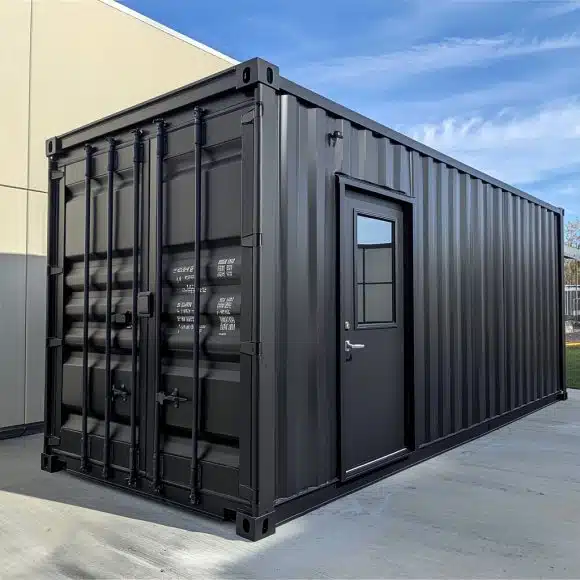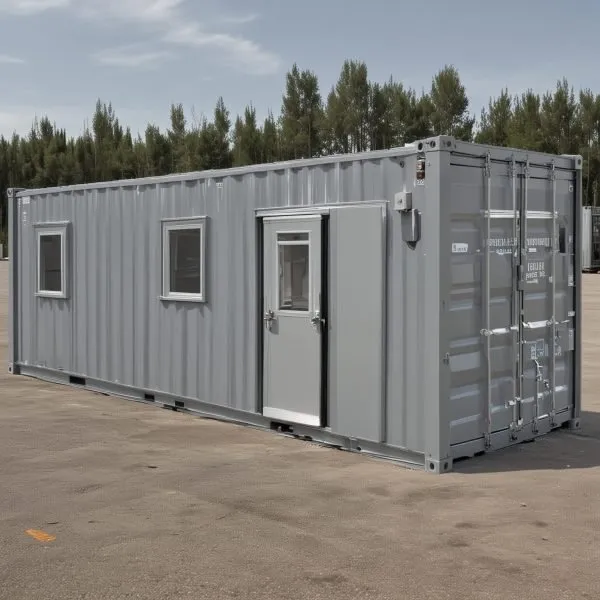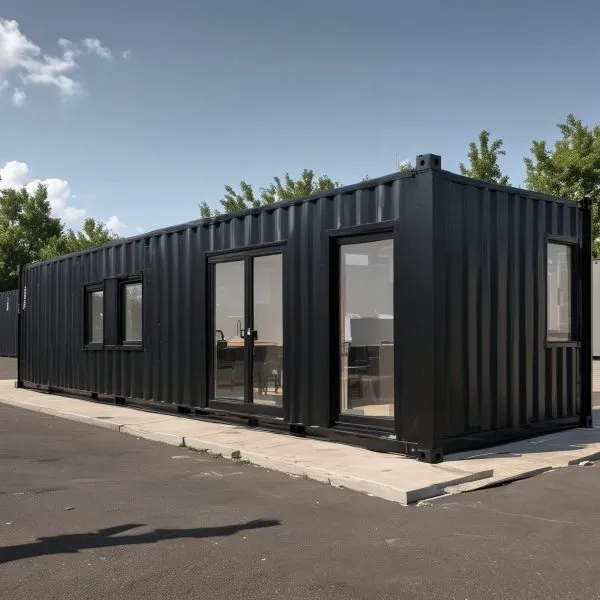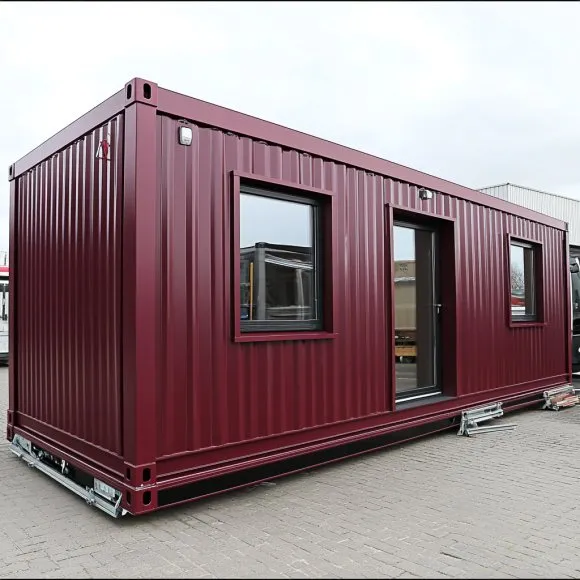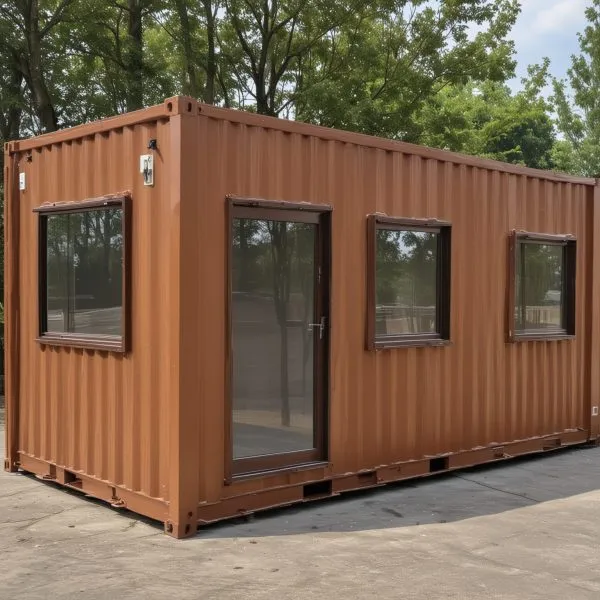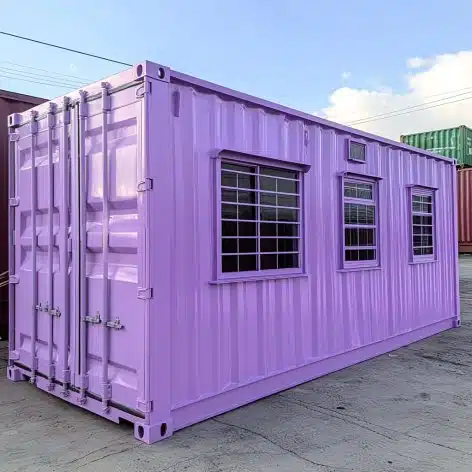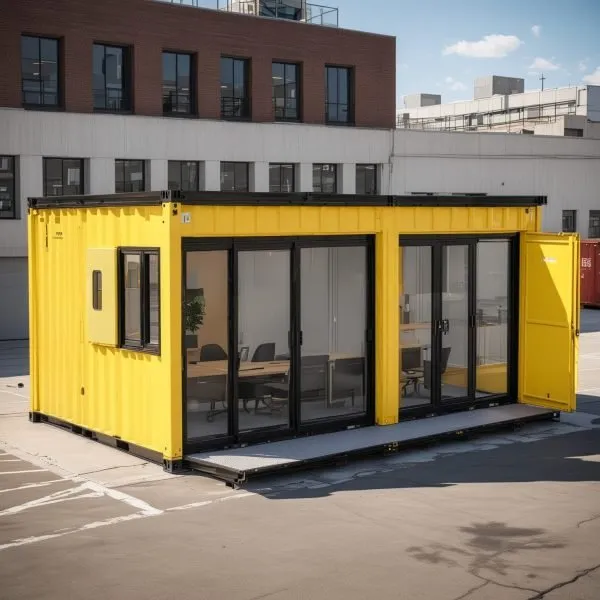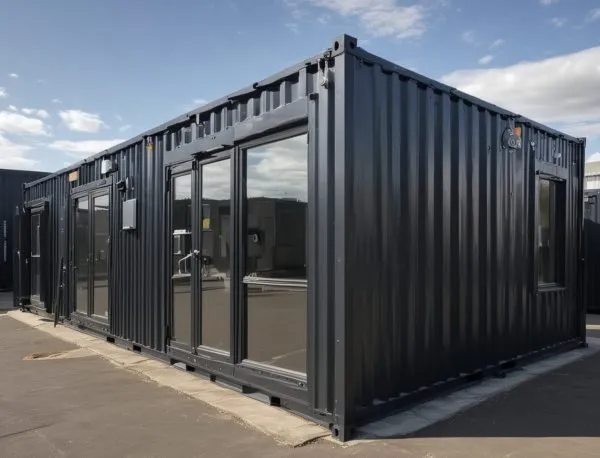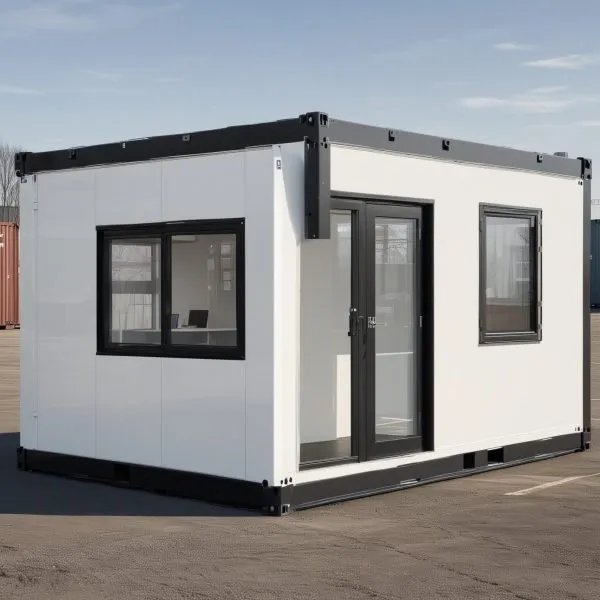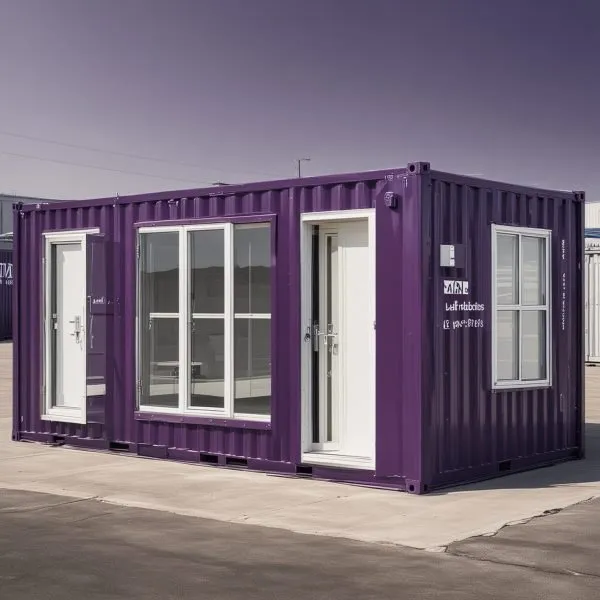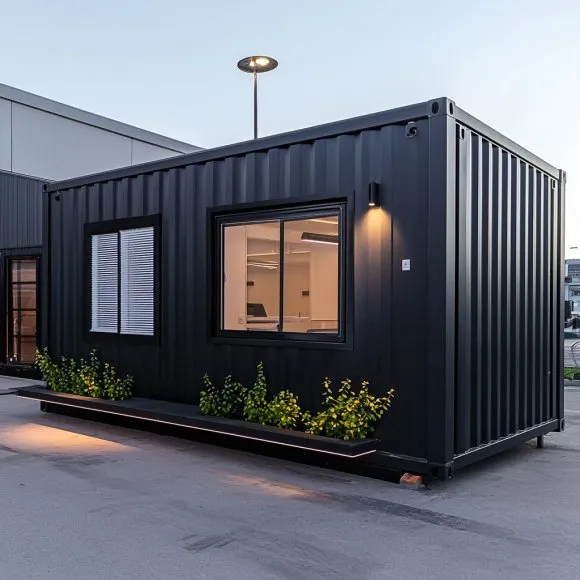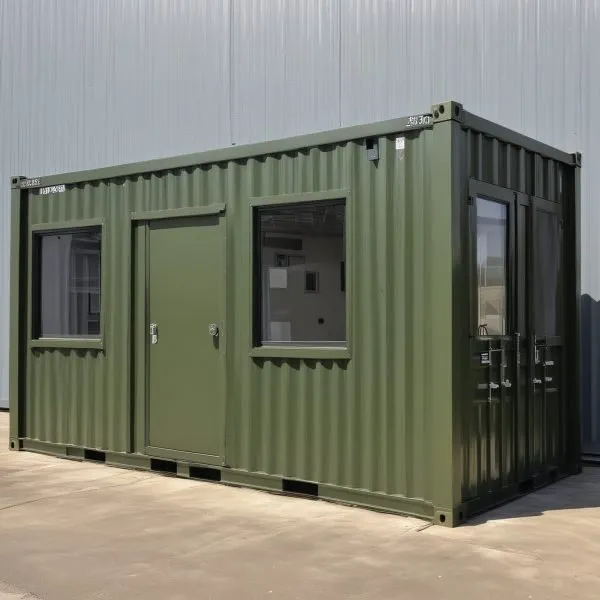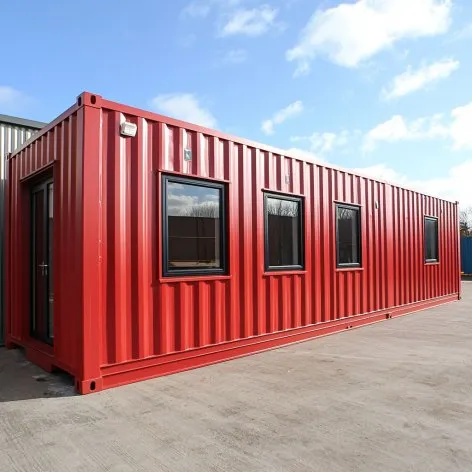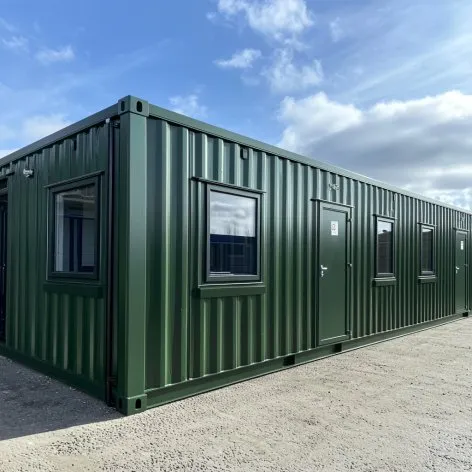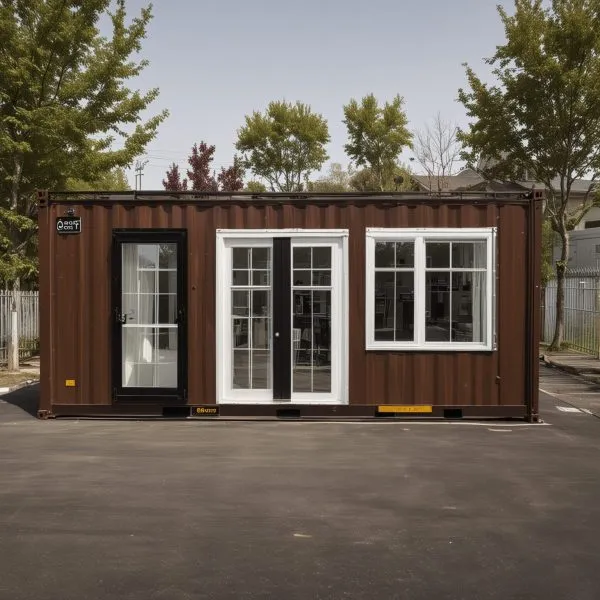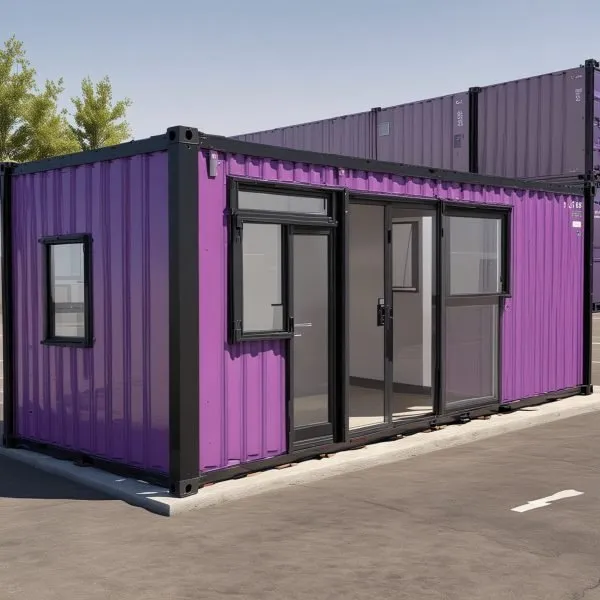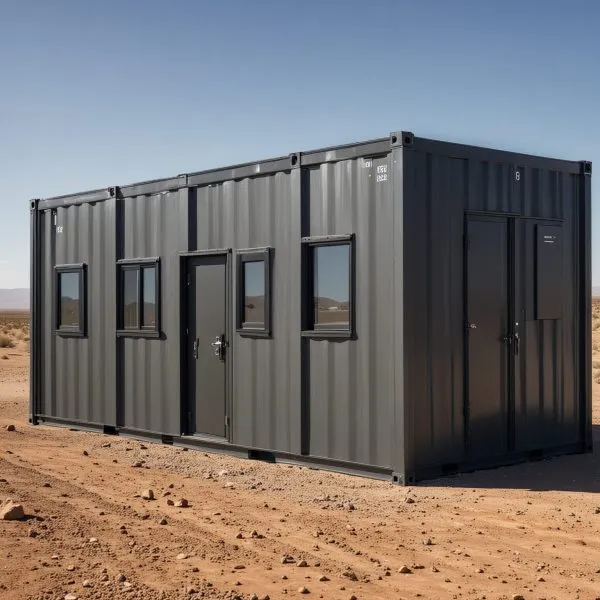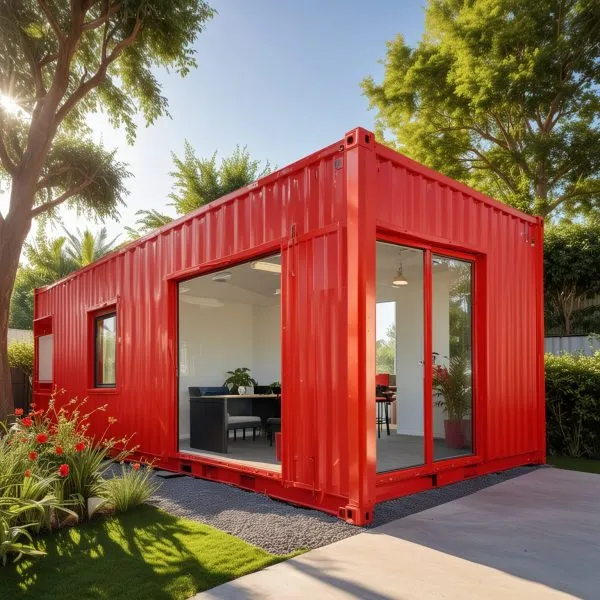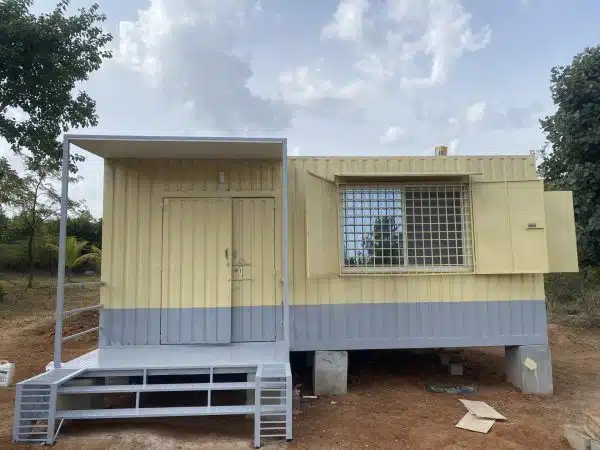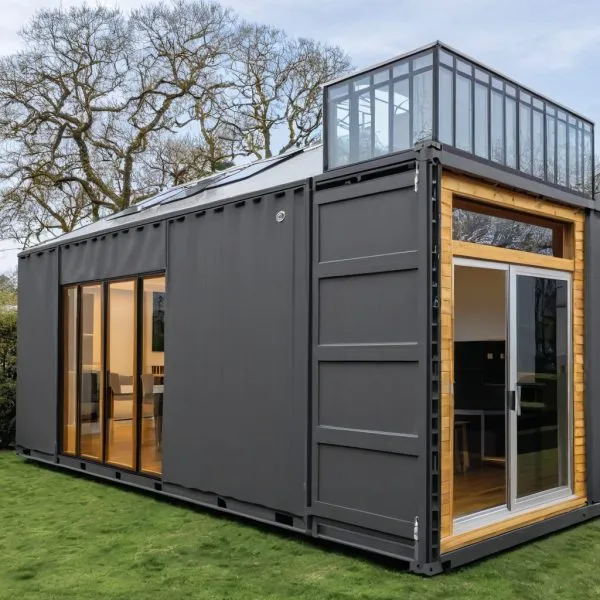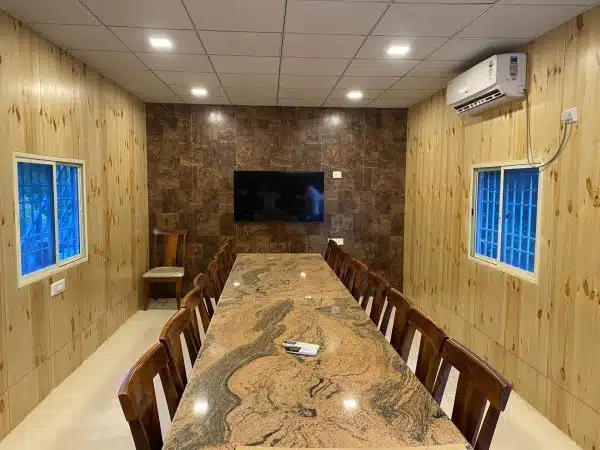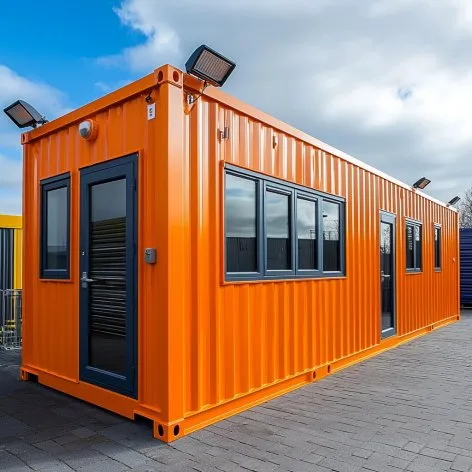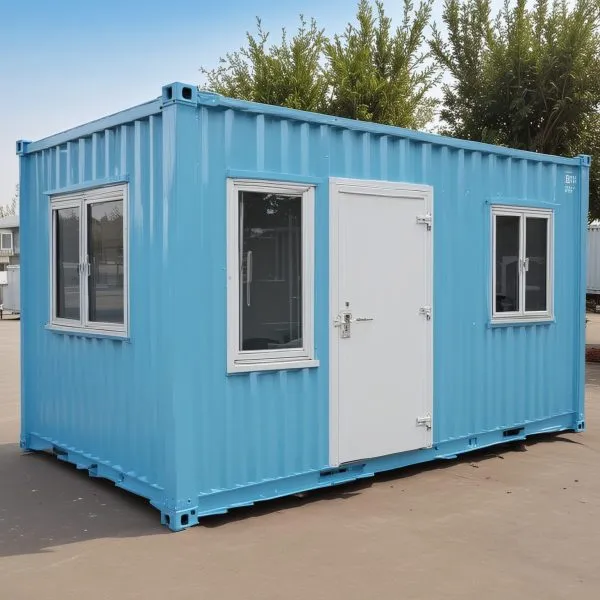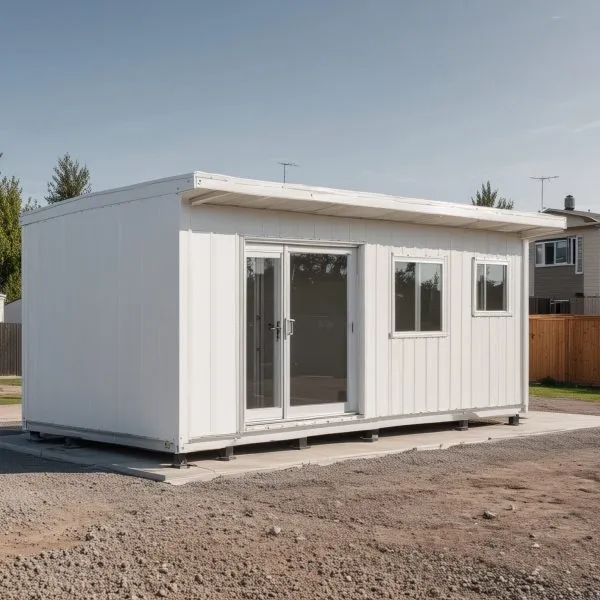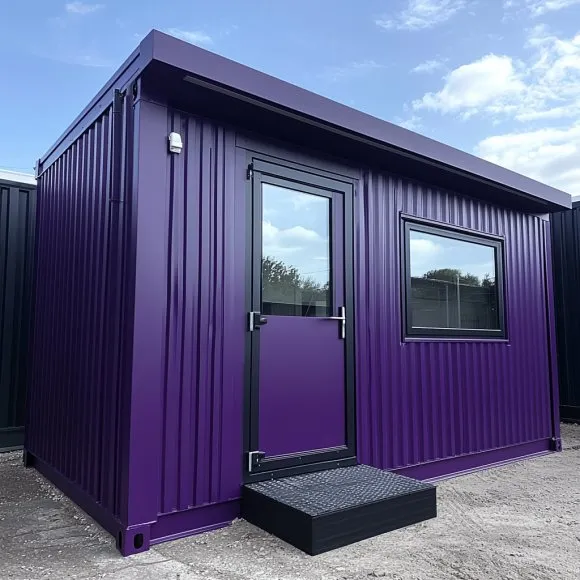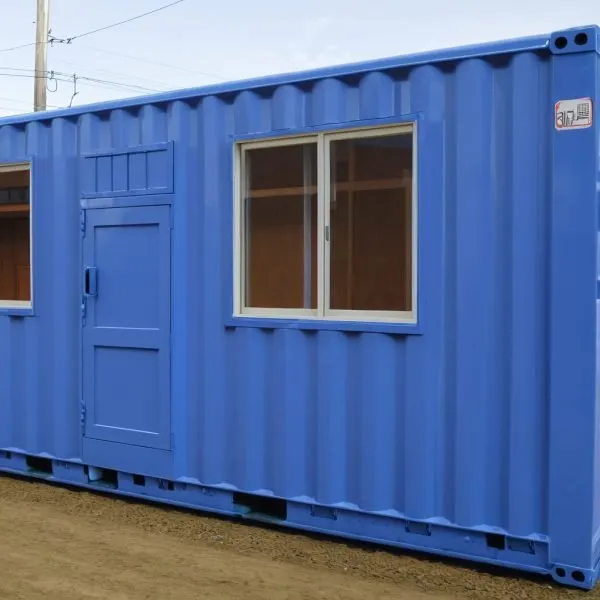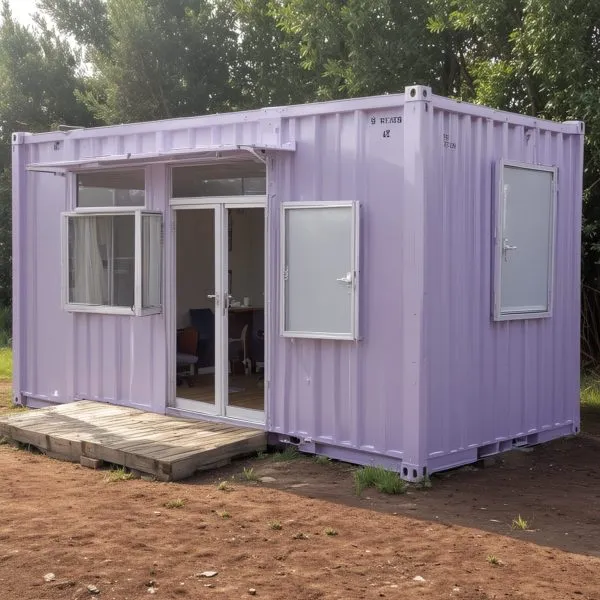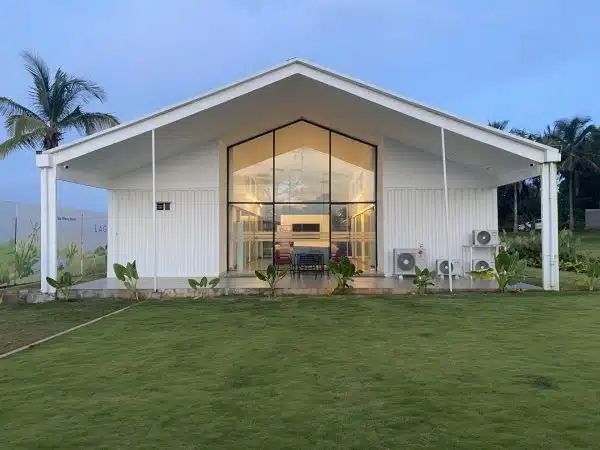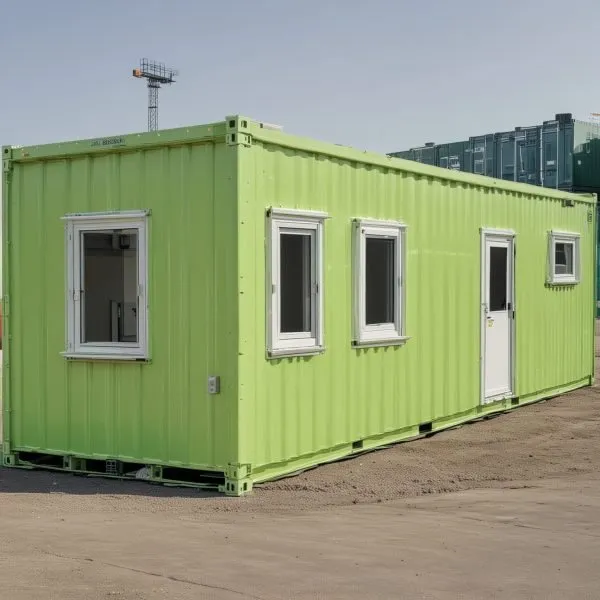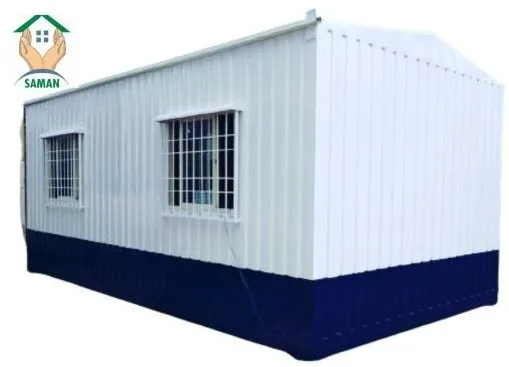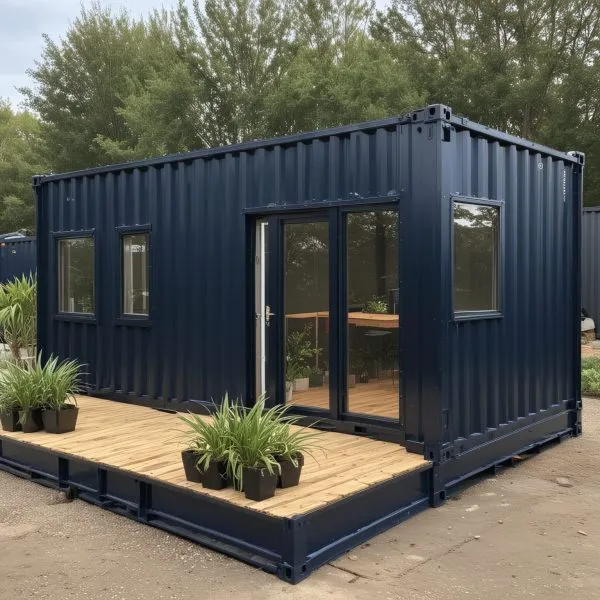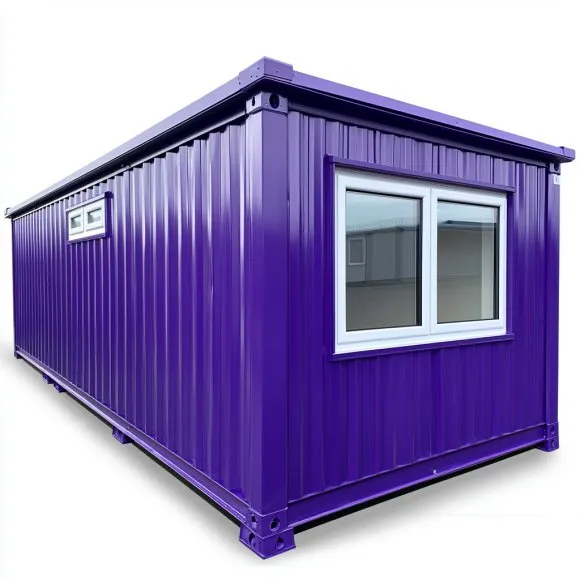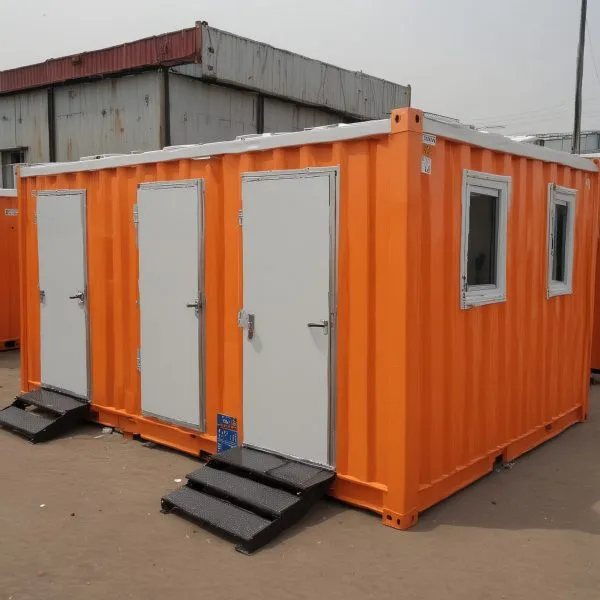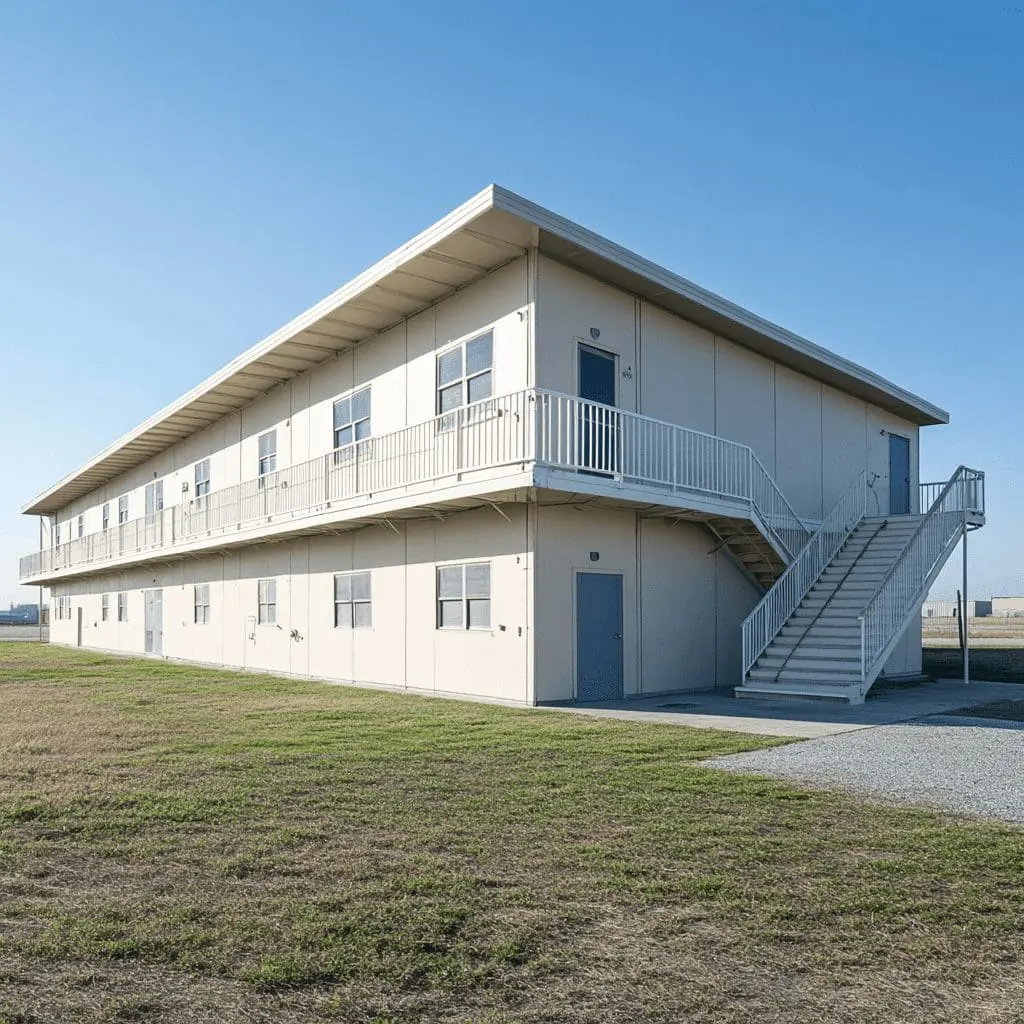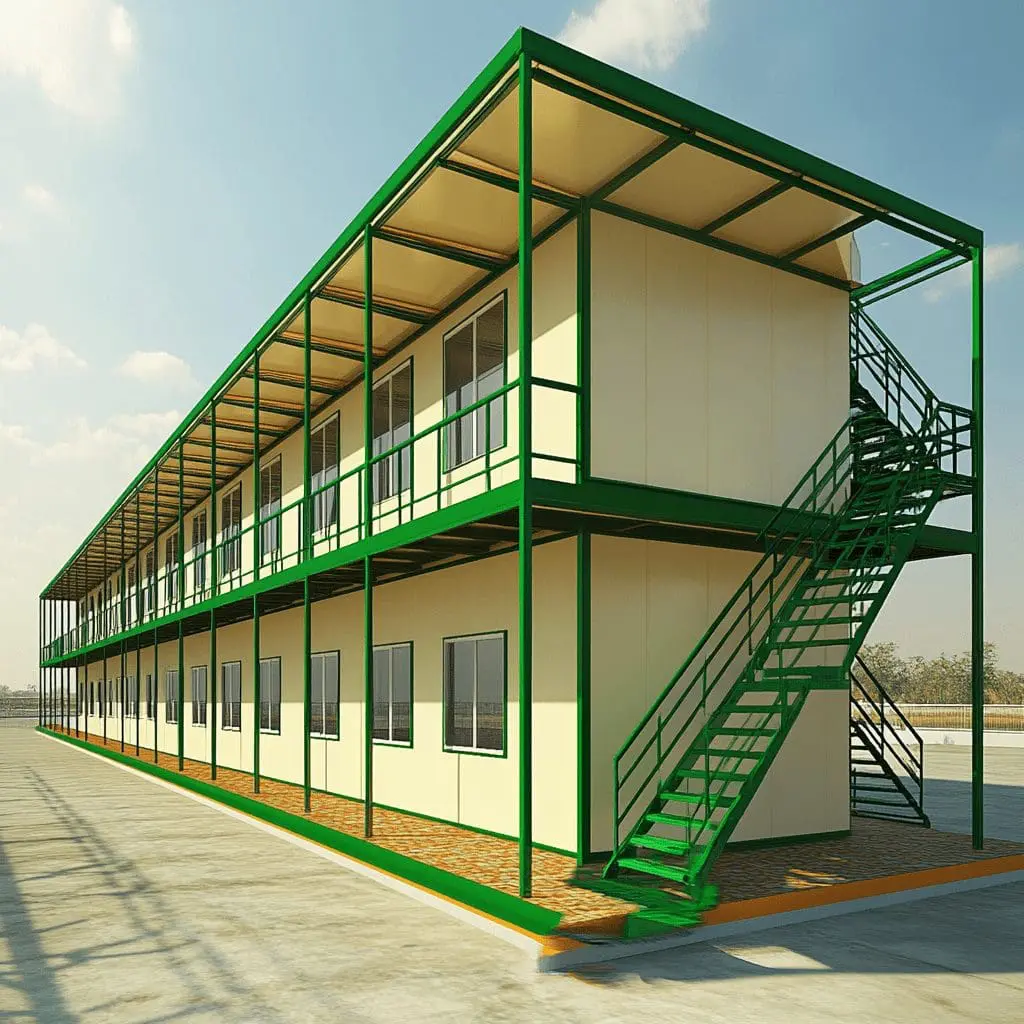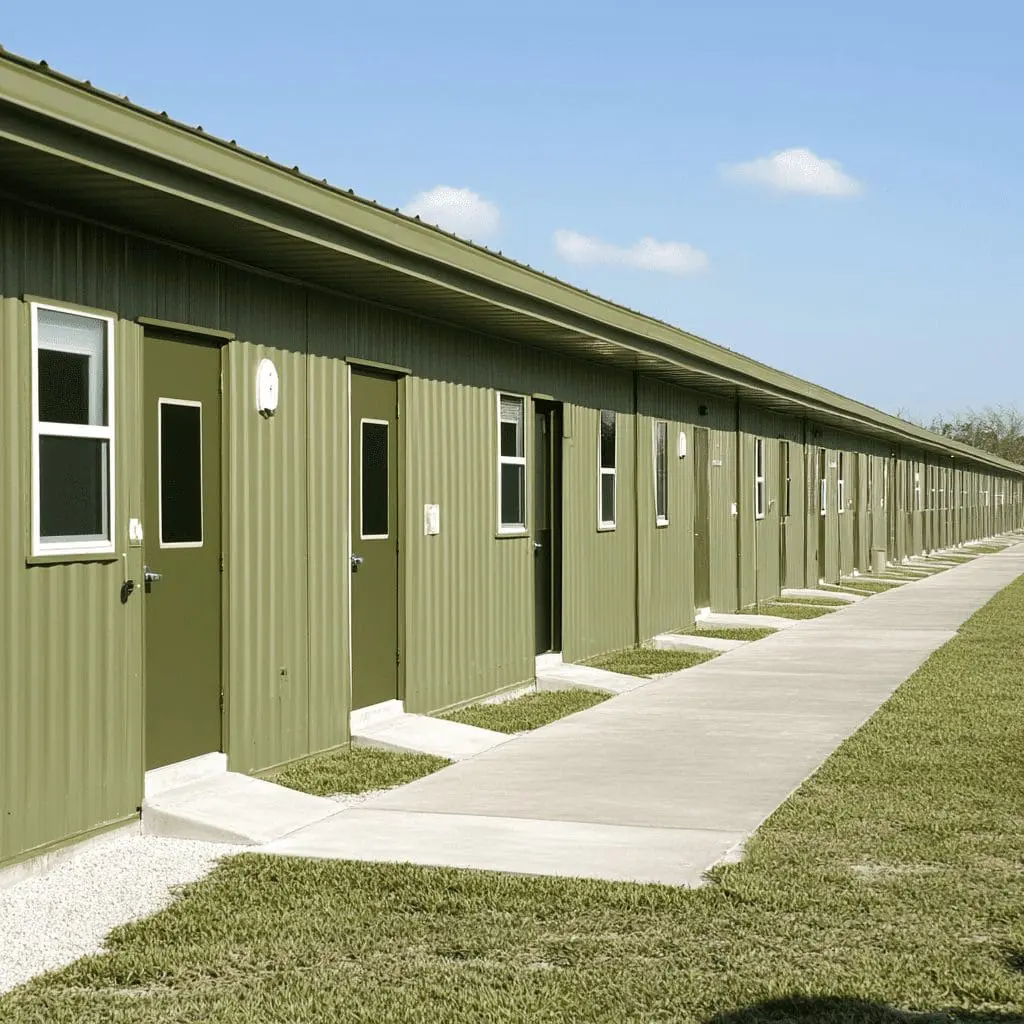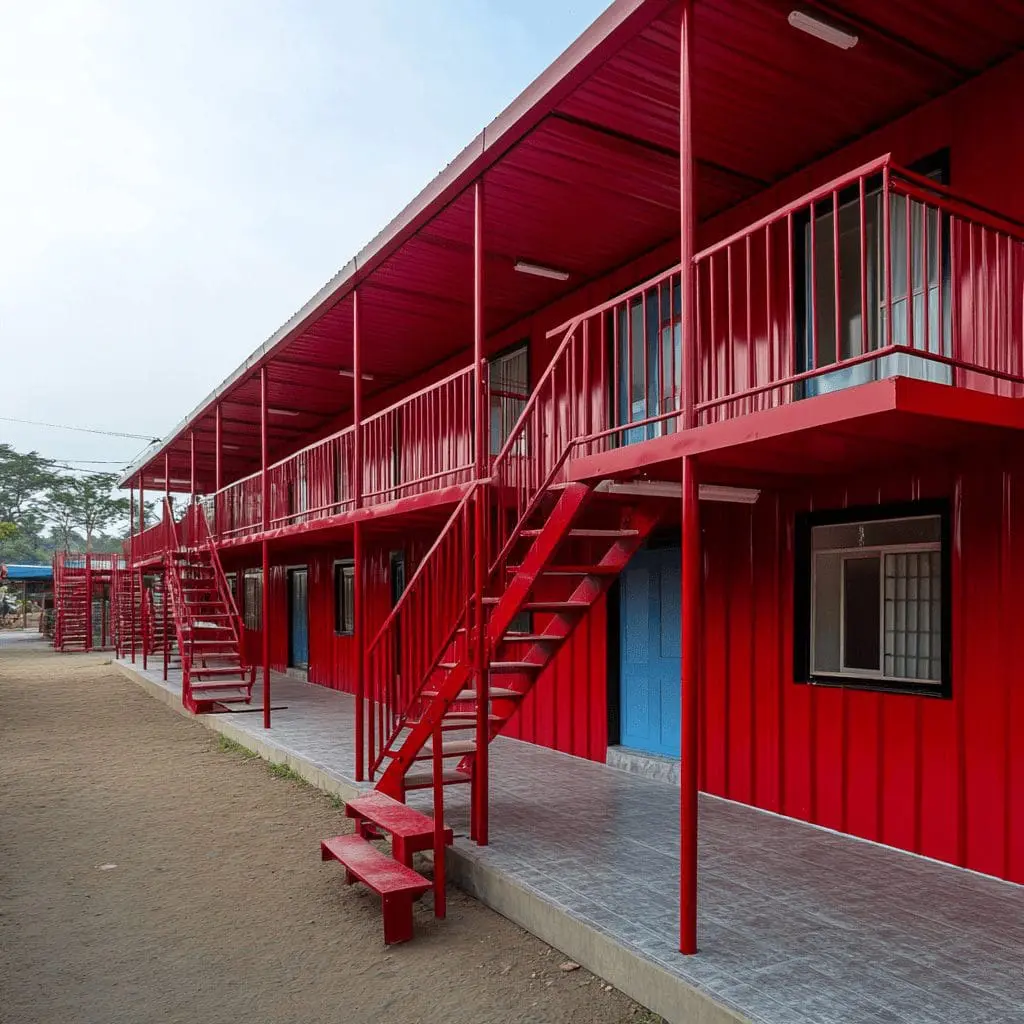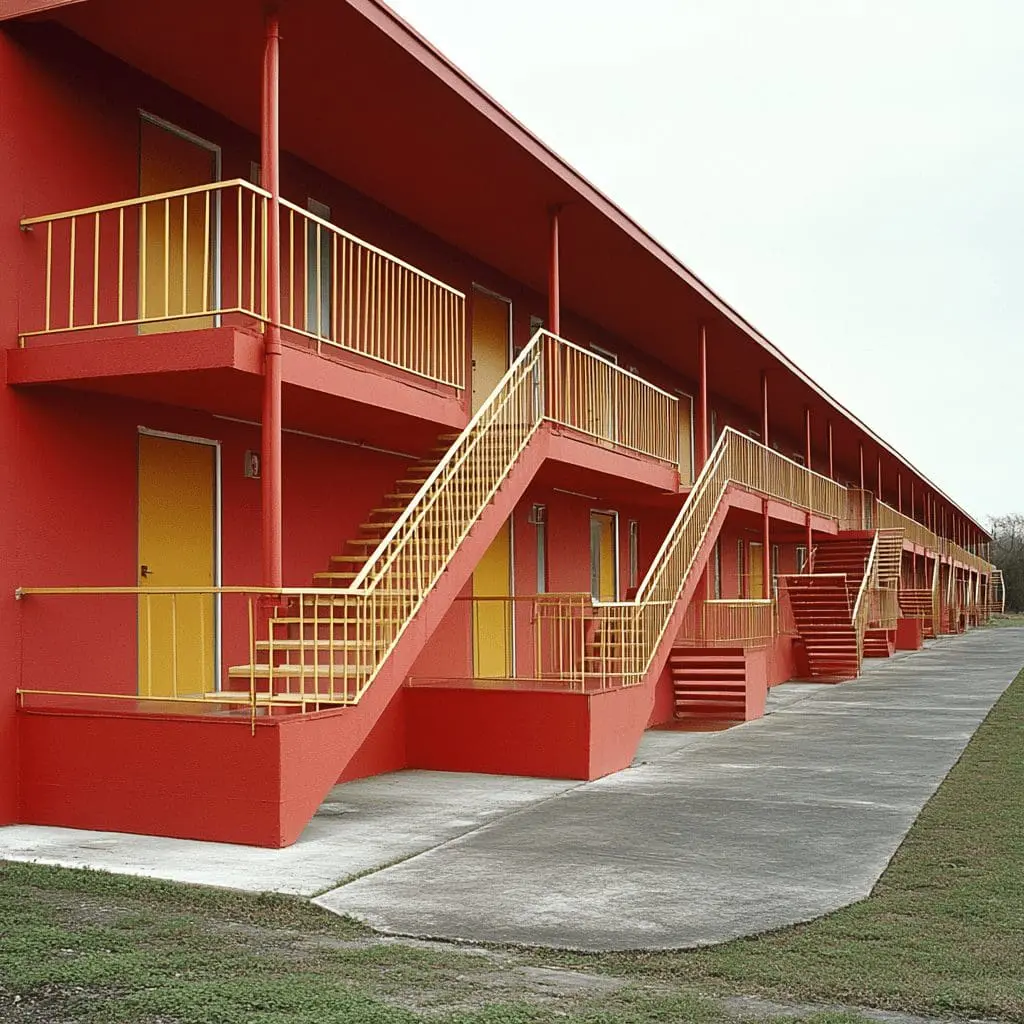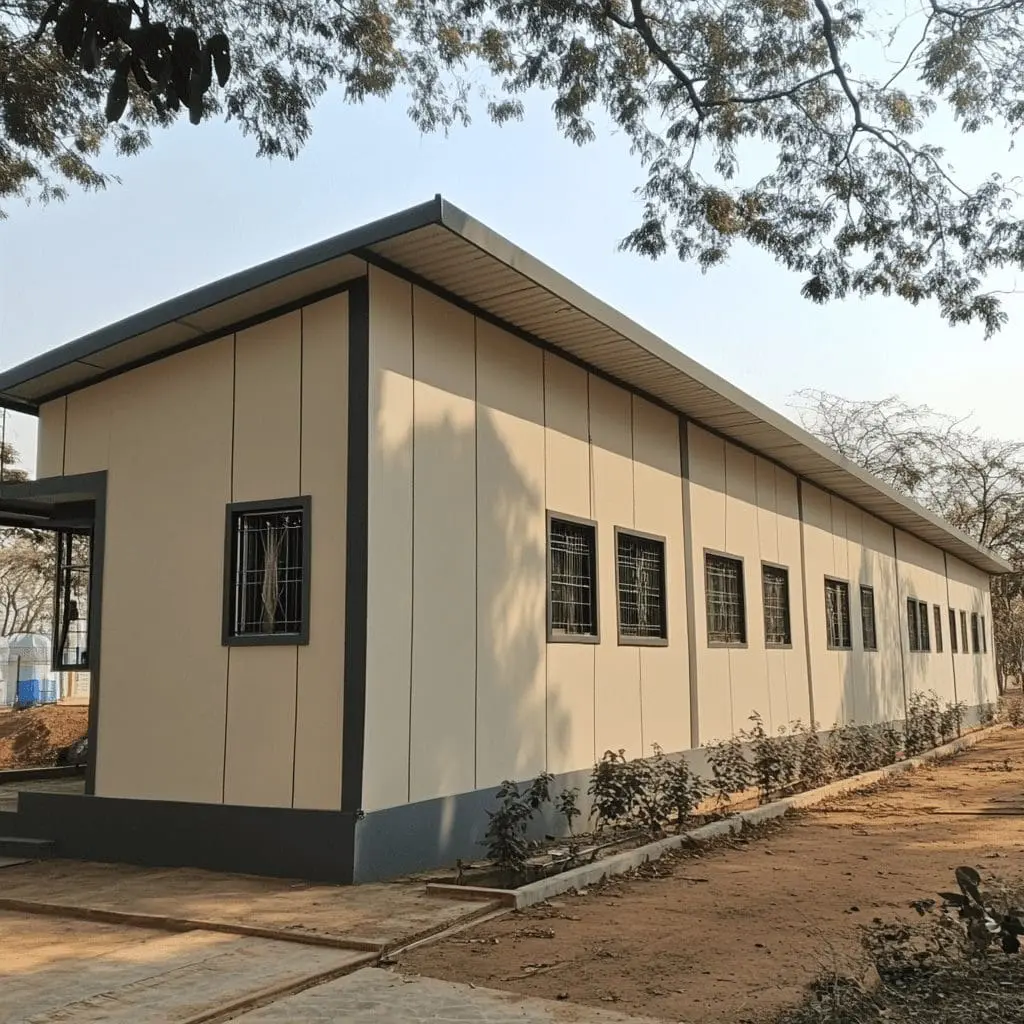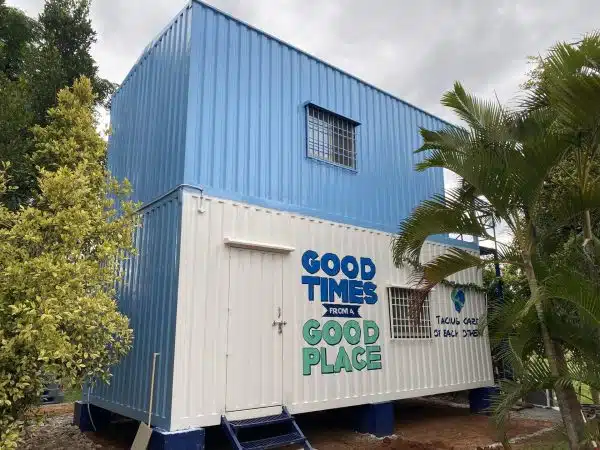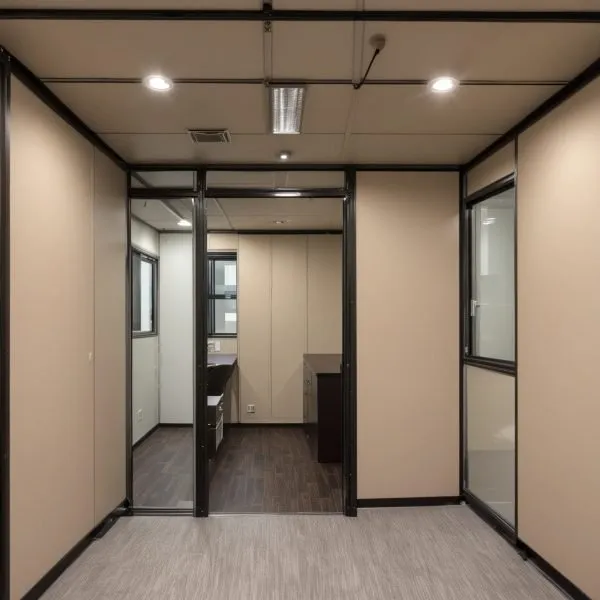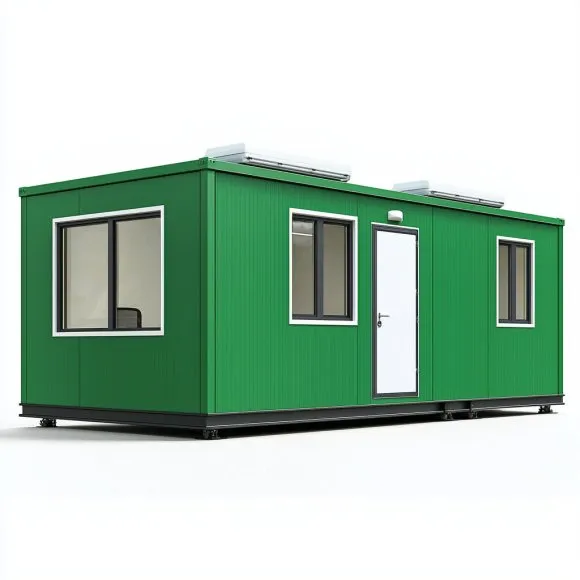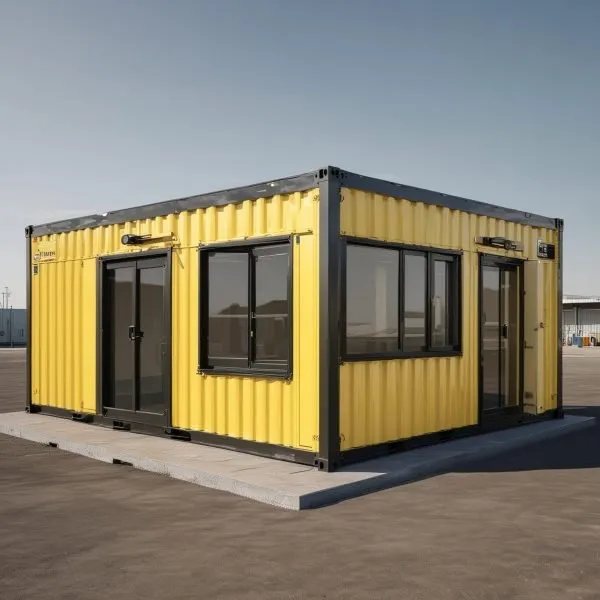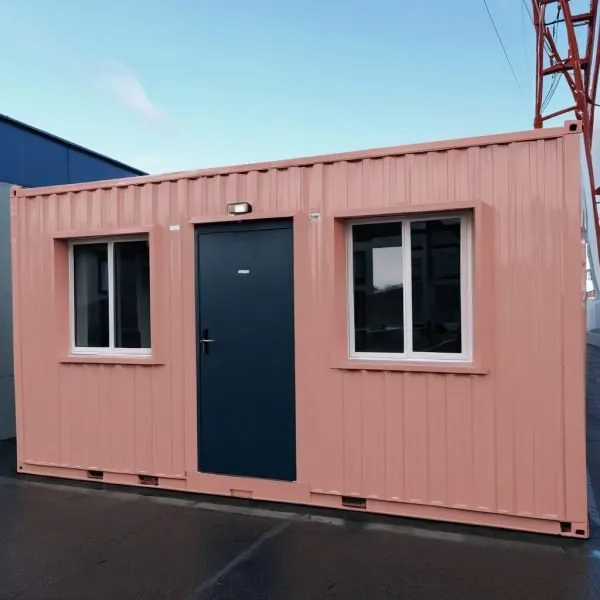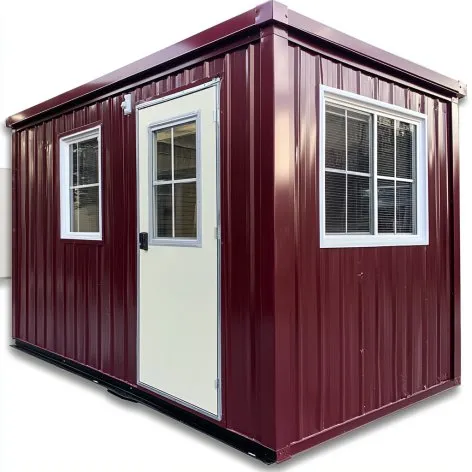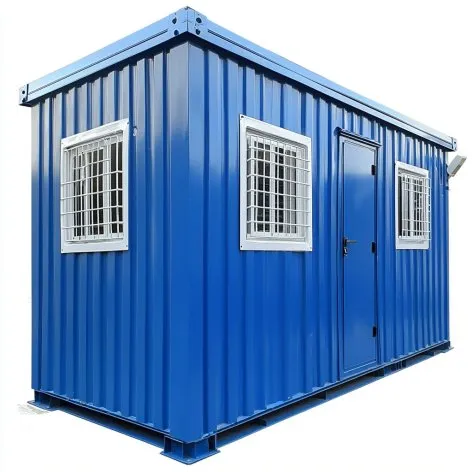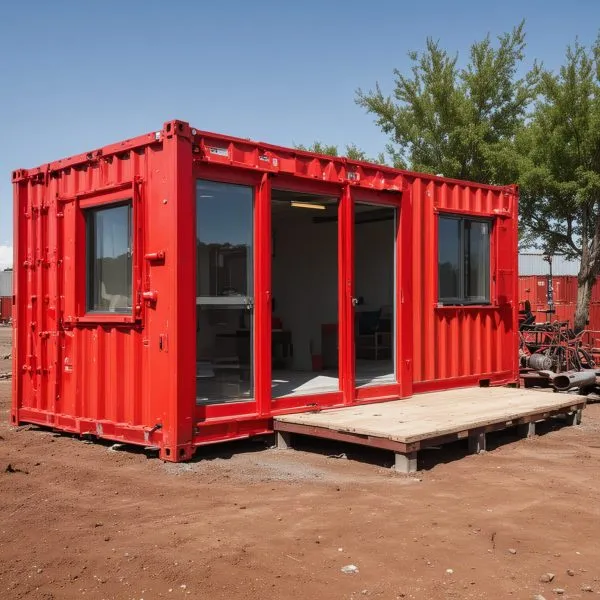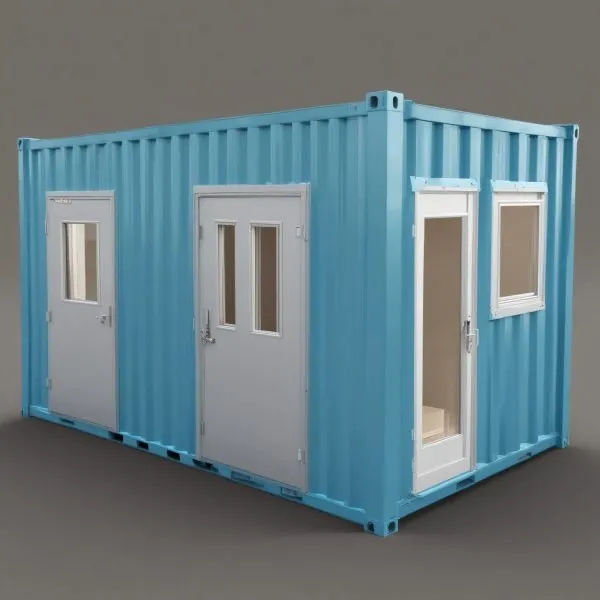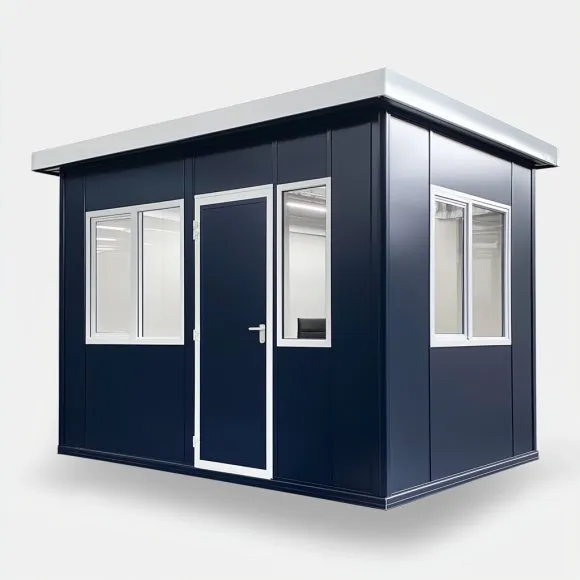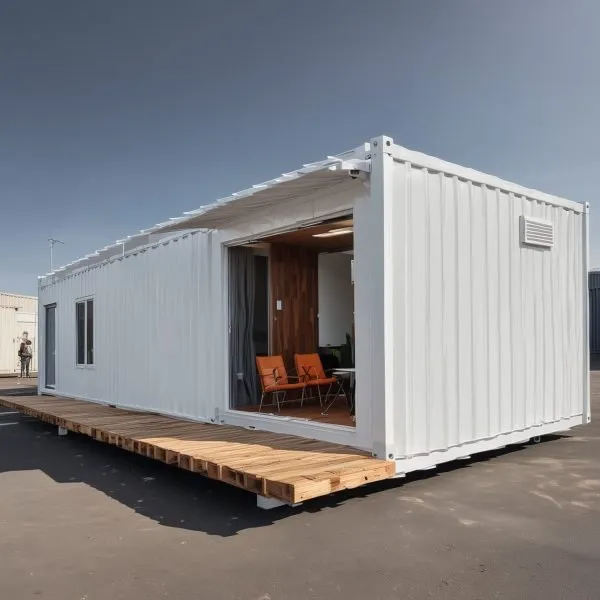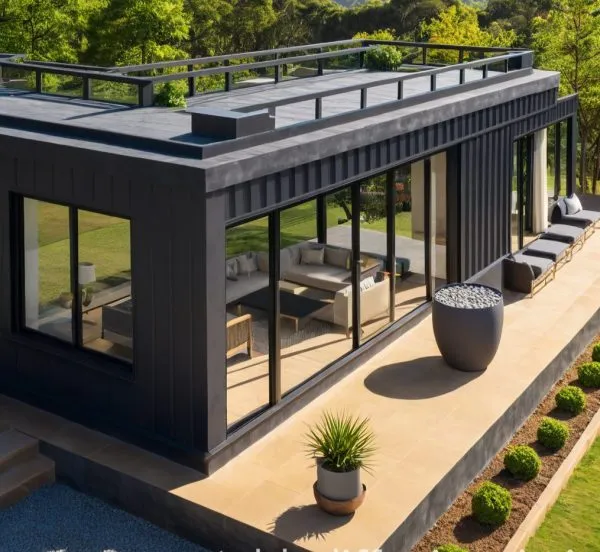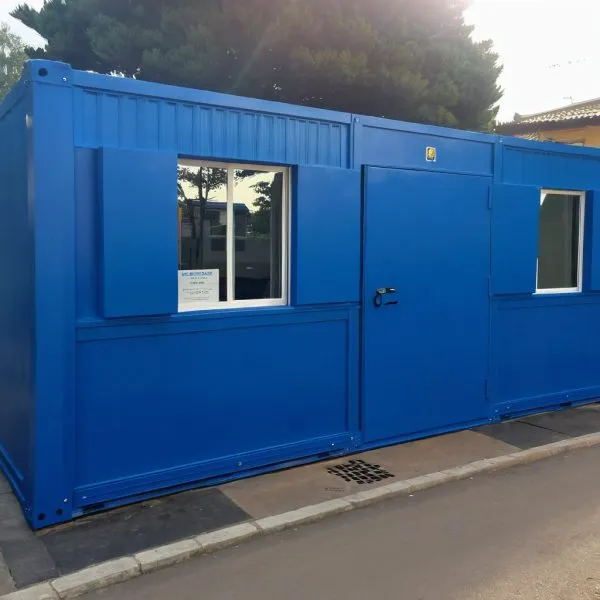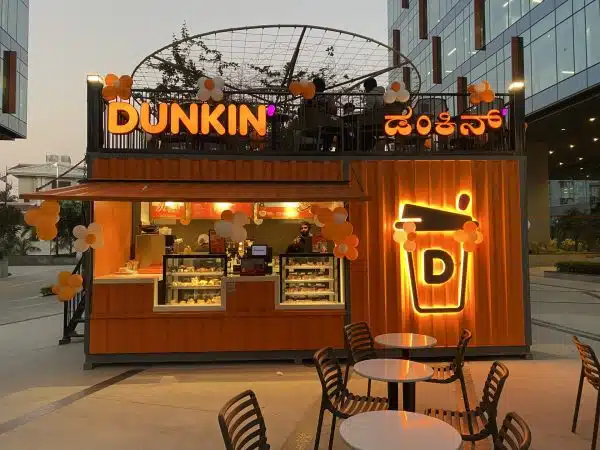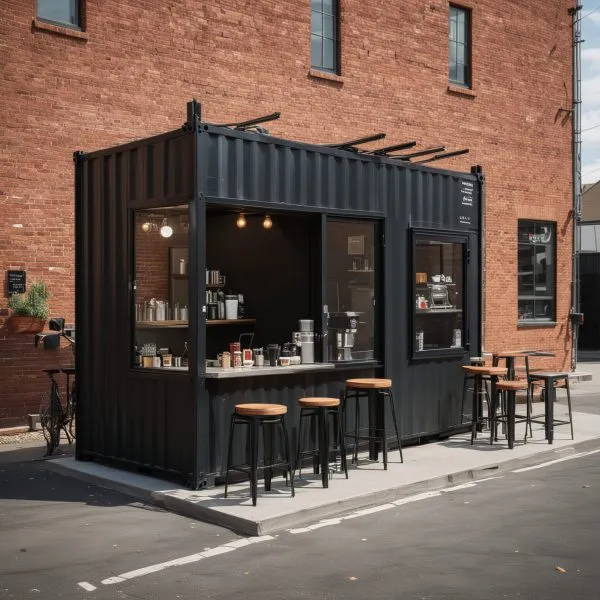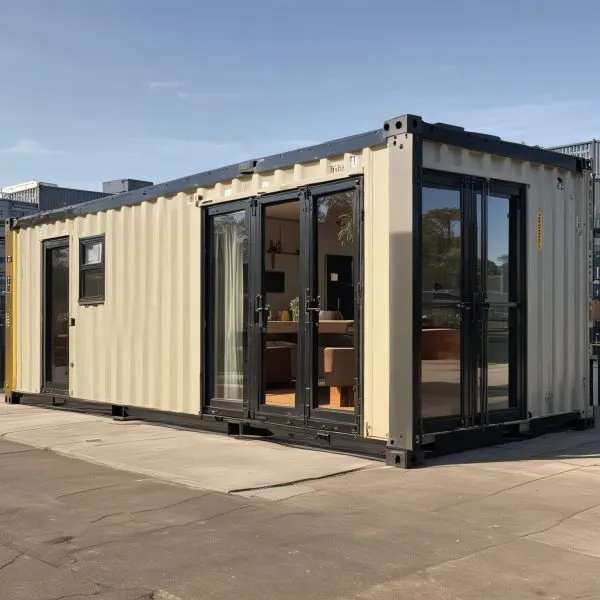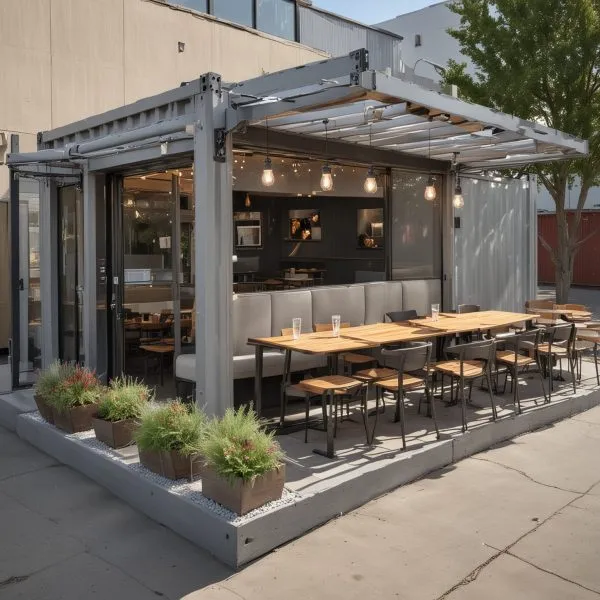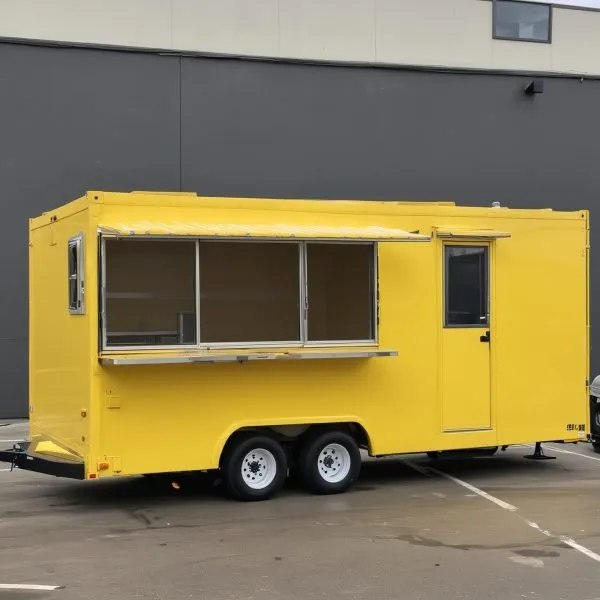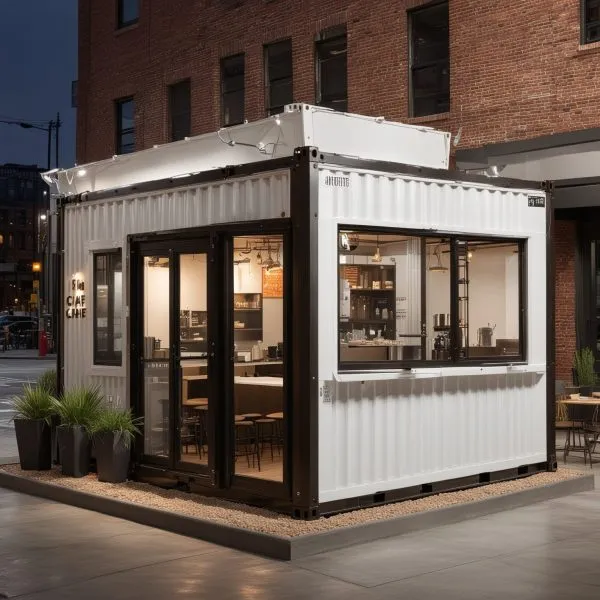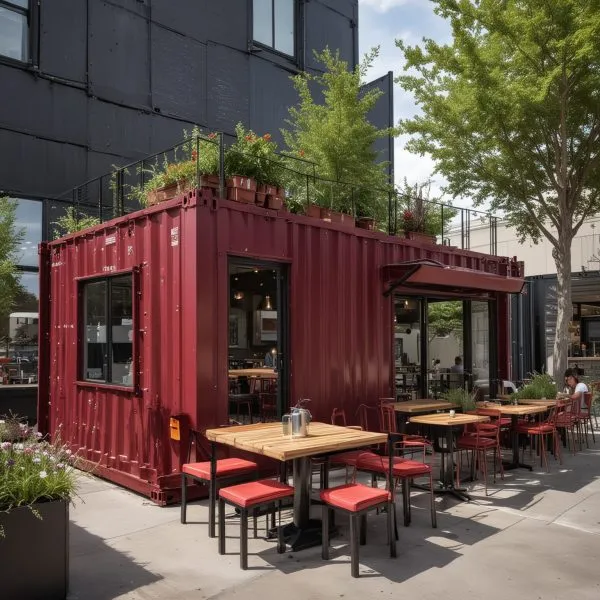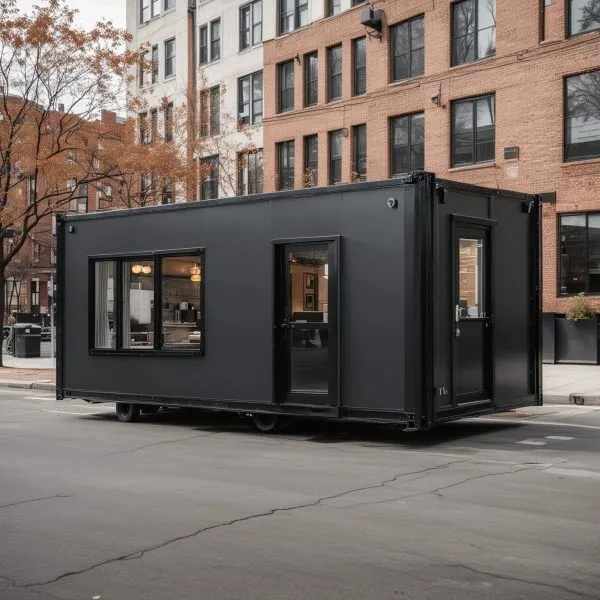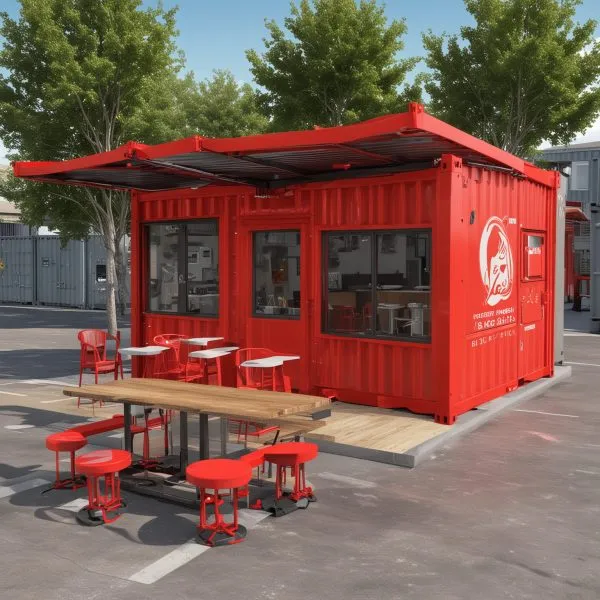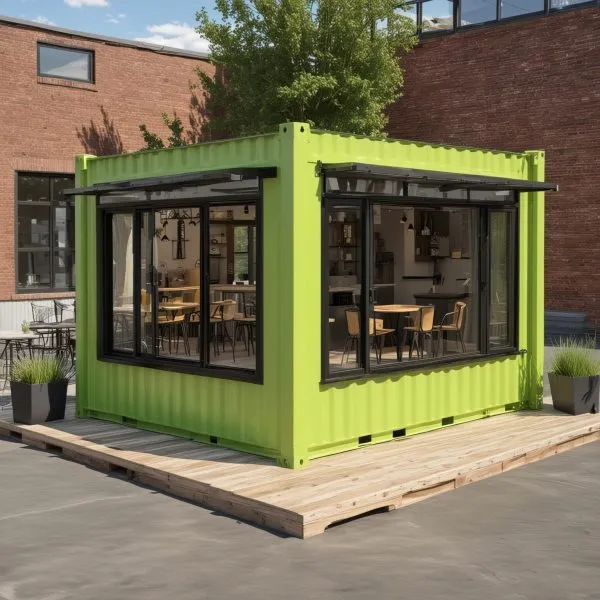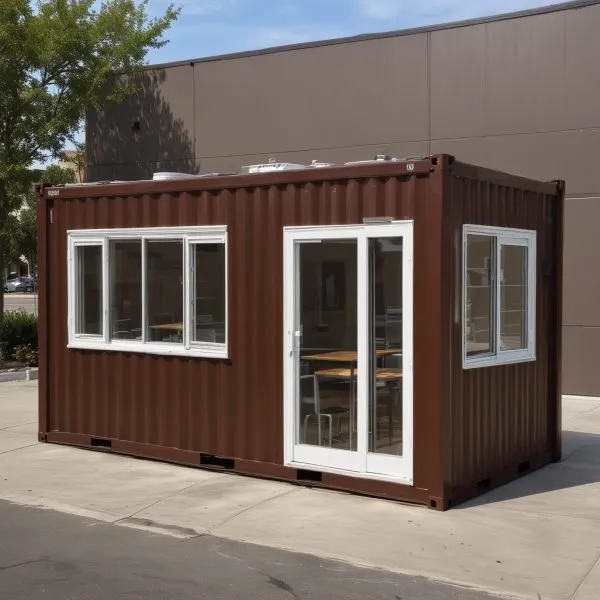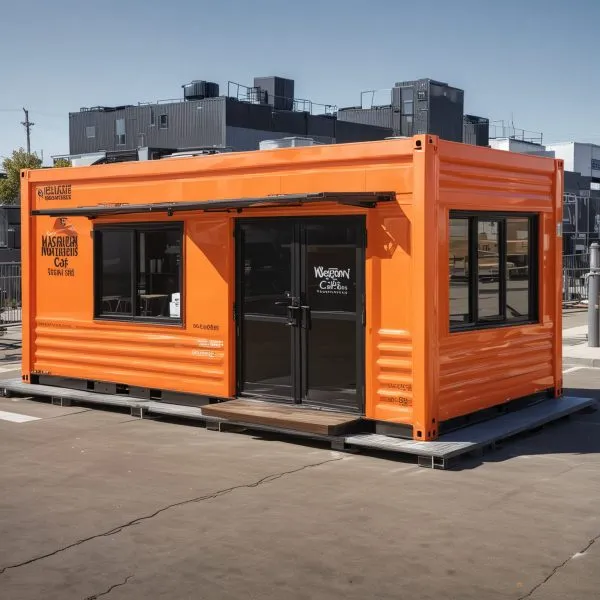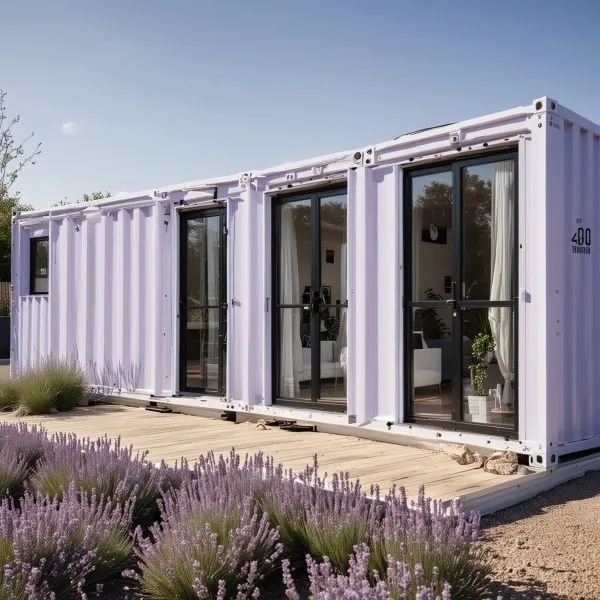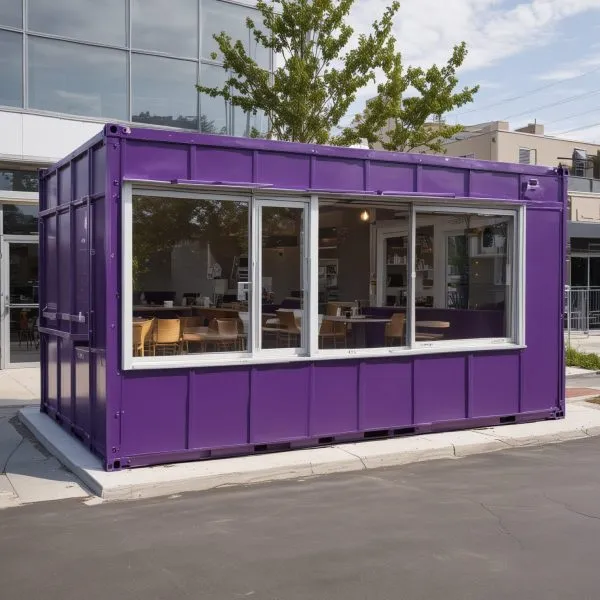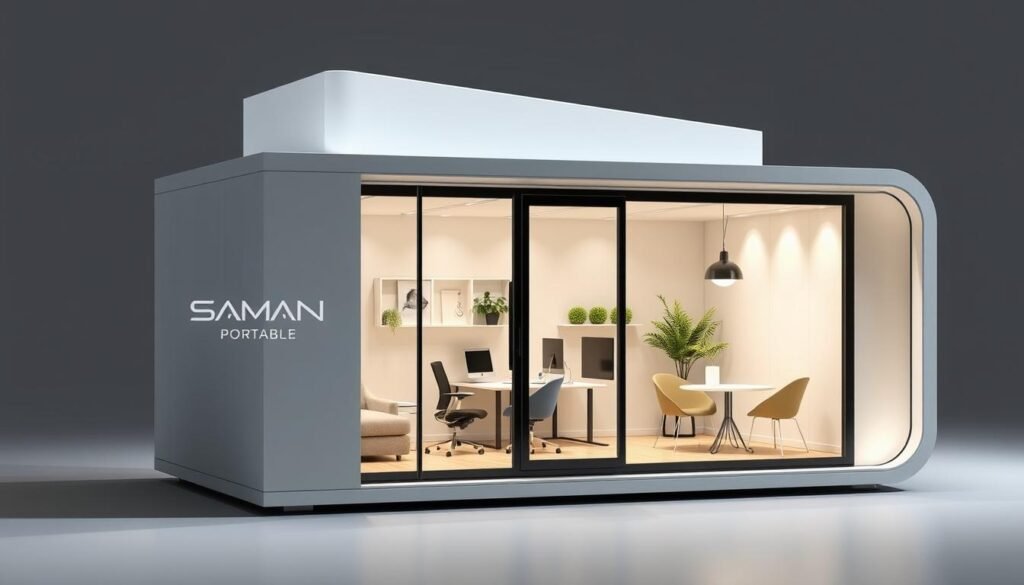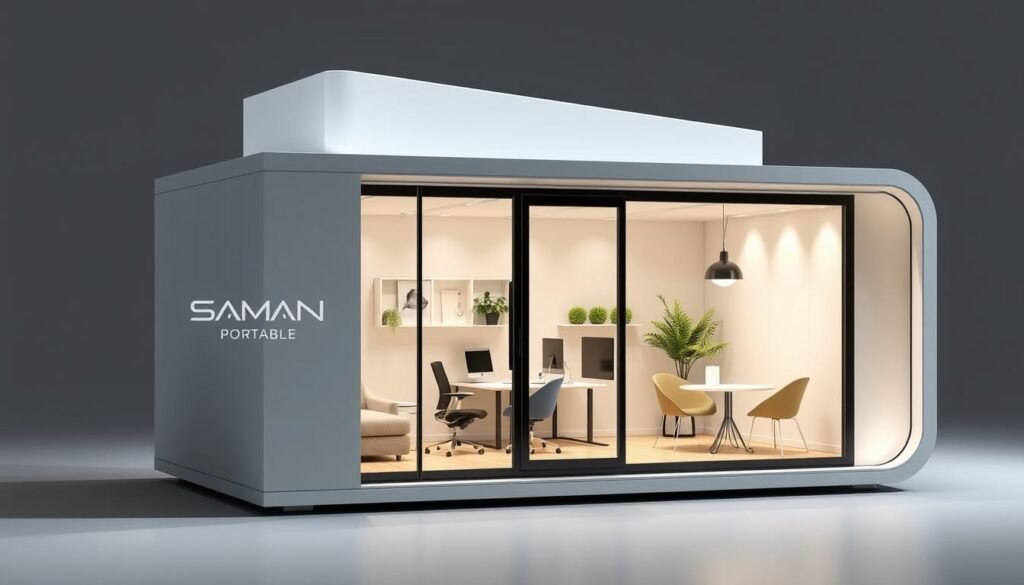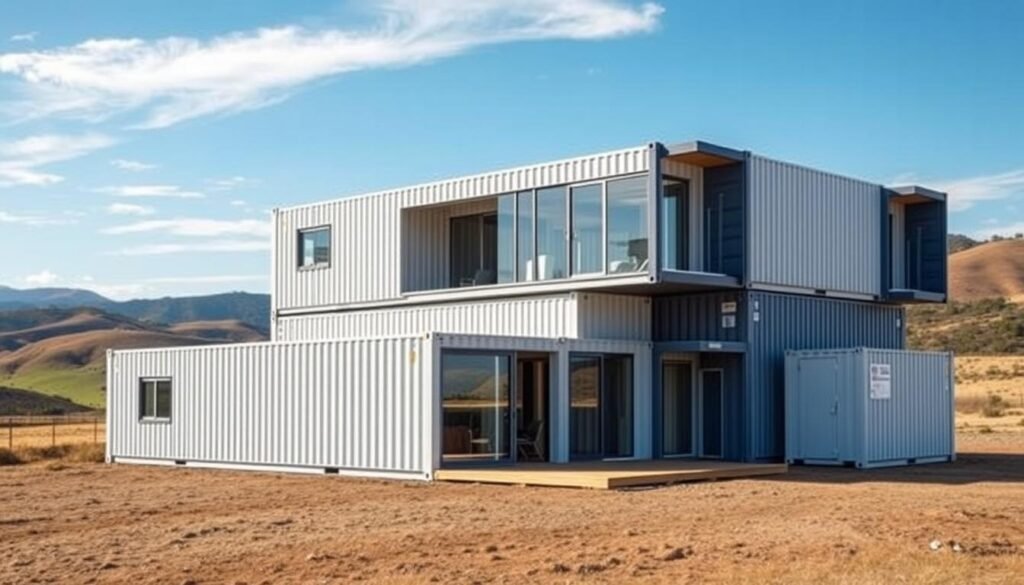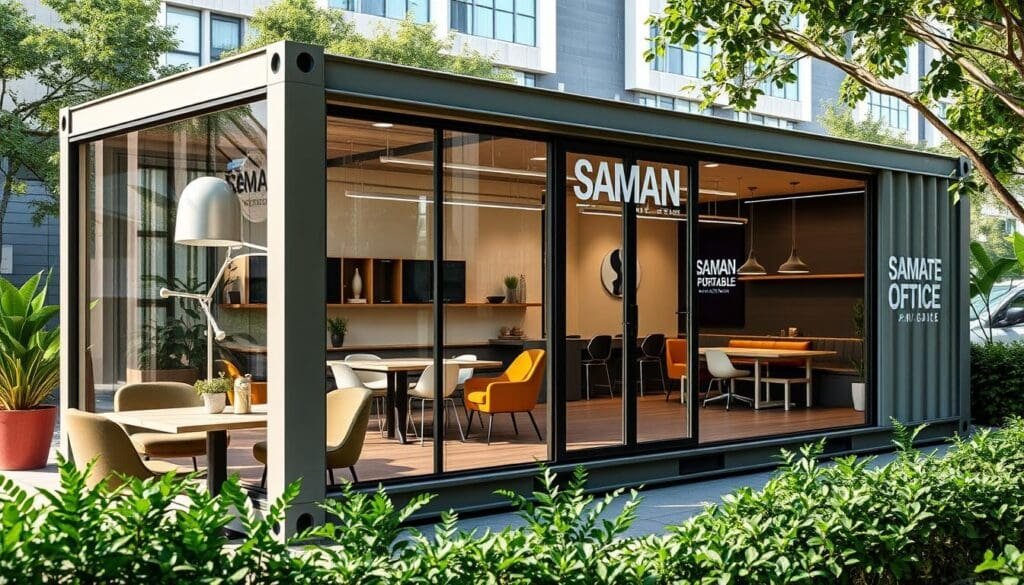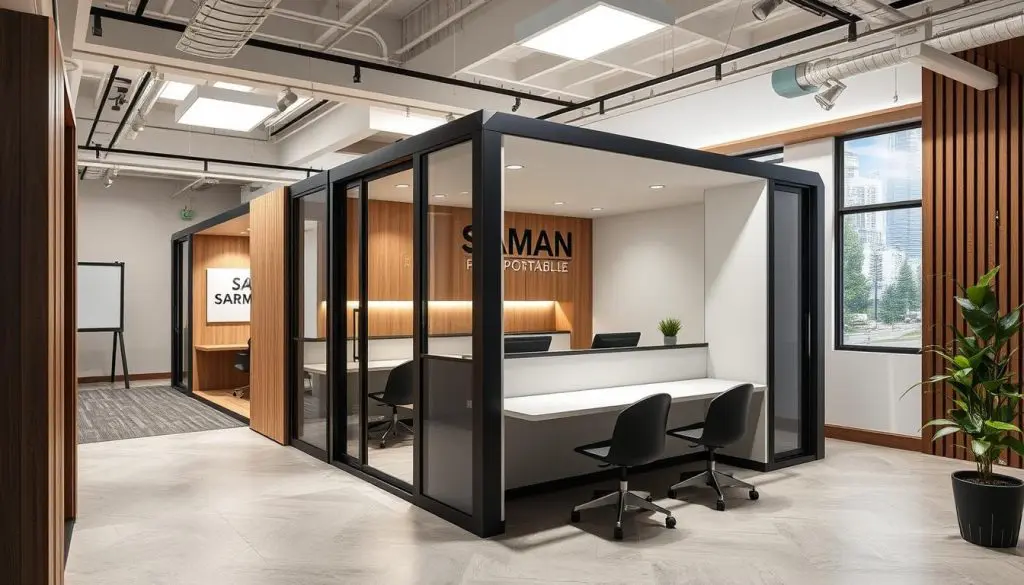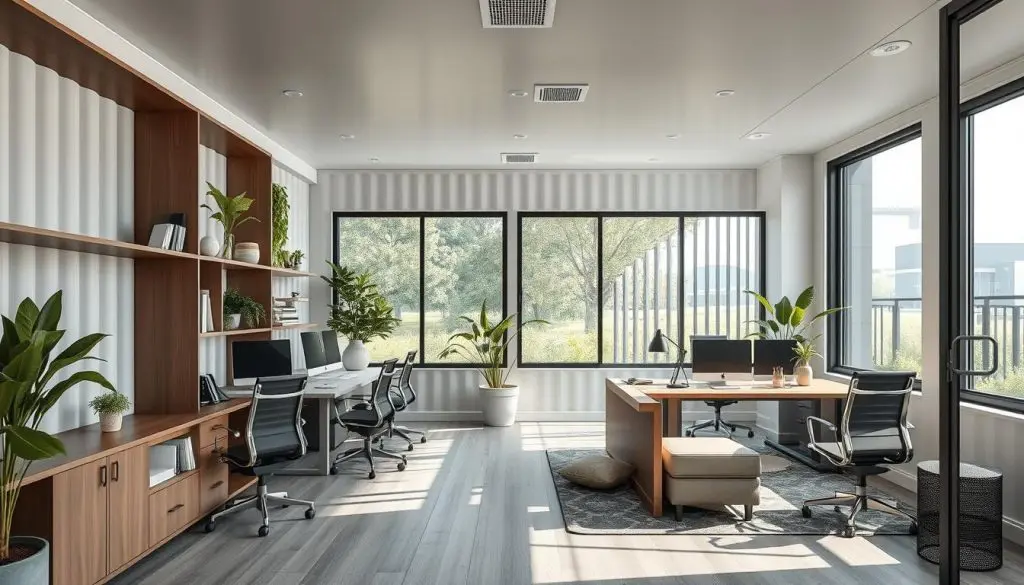Why Containerized Offices Are the Next Big Thing in Flexible Workspace Solutions
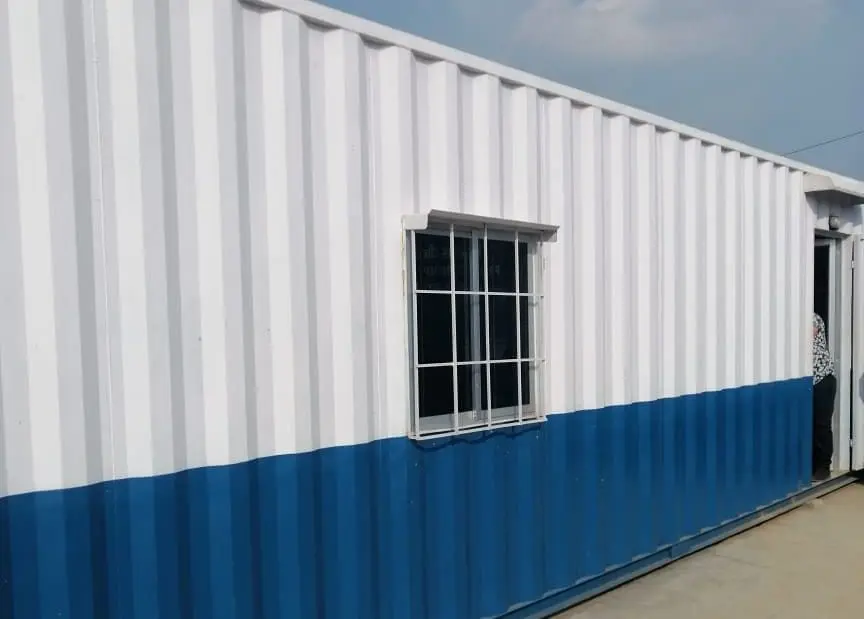
Containerized offices are emerging as a flexible, cost-effective, and sustainable solution for modern workspaces. These offices, repurposed from shipping containers, offer quick deployment, mobility, and customization, making them ideal for various industries. They align with environmental and social responsibility goals, support remote and hybrid work models, and provide businesses with a competitive edge. As businesses continue to prioritize flexibility and sustainability, shipping container offices are poised to play a significant role in the future of workspaces, offering a practical and innovative alternative to traditional office setups.
Introduction: The Evolution of Workspaces
Workspaces have changed a lot over time. In the past, people worked in traditional offices filled with cubicles and closed doors. These spaces were often dull and limited how people could work together. Over time, companies started to realize that employees needed spaces where they could collaborate more easily. This led to the rise of open-plan offices, where everyone worked in the same big room. While this change helped people work together, it also brought challenges like noise and lack of privacy. As we continue to look for better ways to work, containerized offices have started to emerge as a new and exciting option.
Today, the way people work is shifting even more. Many workers no longer want to be stuck in one place all the time. They prefer flexibility, which allows them to work from different locations. This has led to a growing demand for workspaces that can adapt to these changing needs. Containerized offices are stepping in to meet this demand. These offices are built from shipping containers, which makes them easy to move and customize. Because they are so flexible, they are becoming a popular choice for businesses that want to create unique work environments.
Containerized offices are quickly becoming a key part of the future of workspaces. They offer solutions to many of the problems that traditional offices and even open-plan offices couldn’t solve. These offices are not only flexible but also cost-effective and environmentally friendly. Companies can set them up quickly and move them as needed, which saves time and money. Plus, because they use repurposed materials, they help reduce waste. As more companies recognize these benefits, modular offices are likely to become even more common, changing the way we think about workspaces.
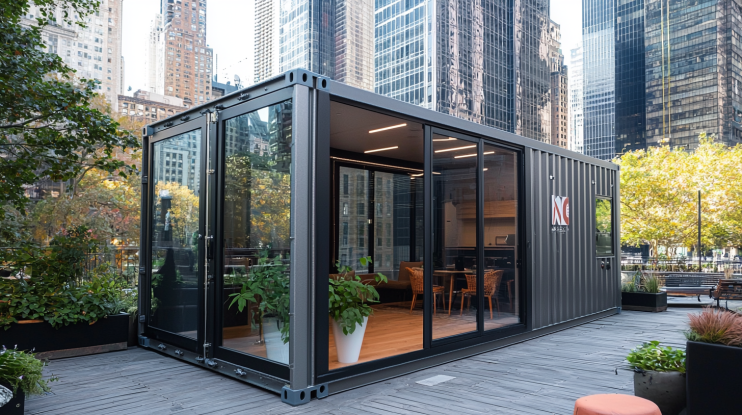
Sleek metallic silver container office blending with the urban skyline
Understanding Containerized Offices
Containerized offices are an innovative solution that transforms shipping containers into functional workspaces. These offices are made from large, steel containers that were originally used to transport goods across oceans. Instead of letting these containers go to waste, they are repurposed into office spaces that can be placed almost anywhere. The process involves modifying the container to include windows, doors, insulation, and other necessary features. Because they are made from durable materials, portable buildings are strong, weather-resistant, and built to last. This makes them an excellent option for businesses looking for a sturdy and flexible workspace.
There are different types of containerized offices to suit various needs. Some are simple single-unit offices, perfect for small businesses or temporary setups. These can be used as individual offices, meeting rooms, or even pop-up shops. For larger needs, multi-unit complexes are available. These involve connecting several containers to create a larger workspace, similar to traditional office buildings. Some businesses even choose hybrid models, which combine shipping container offices with other types of structures. This variety allows companies to find the perfect solution for their specific needs, whether they require a small office or a larger, more complex space.
Containerized offices come with several key features that make them appealing. One of the biggest advantages is their modular design, which allows them to be easily expanded or reduced in size. This is particularly useful for businesses that need to grow or downsize quickly. Additionally, prefabricated offices are portable, meaning they can be moved to new locations as needed. This flexibility is ideal for companies that operate in multiple locations or that need temporary workspaces. Finally, these offices are built with sustainability in mind, often using eco-friendly materials and energy-efficient designs. As a result, temporary office spaces not only provide a practical workspace but also help reduce environmental impact.
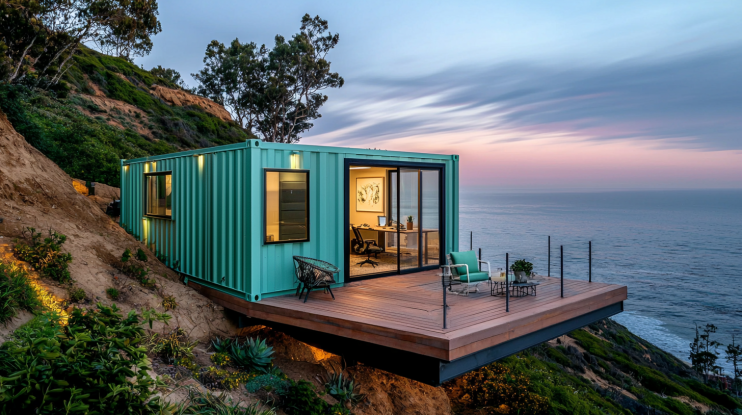
Seafoam green container office with stunning coastal cliffside views
The Demand for Flexibility in Modern Workspaces
In today’s fast-paced world, the need for flexibility in workspaces has never been greater. As the traditional 9-to-5 office model becomes less common, businesses are looking for new ways to accommodate different working styles and schedules. Remote work has become more popular, allowing employees to work from various locations rather than a fixed office. Additionally, businesses are adopting hybrid work models, where employees split their time between the office and home. These changes have made it clear that traditional office spaces, with their rigid layouts, no longer meet the needs of modern workers.
Containerized offices offer a solution to this growing demand for flexible workspaces. Because they are modular and portable, these offices can be easily adapted to different working environments. For example, a company might use a containerized office as a temporary project site or a remote work hub in a different city. The ability to move and reconfigure these offices allows businesses to respond quickly to changing needs without the hassle of building or leasing new space. Moreover, mobile offices can be customized to include specific features that support different types of work, such as quiet areas for focused tasks or open spaces for collaboration.
As businesses continue to evolve, the flexibility provided by containerized offices will become even more valuable. Companies are increasingly looking for ways to reduce overhead costs and improve efficiency, and having a workspace that can change as needed is a significant advantage. Sustainable workspaces allow businesses to expand or downsize their operations without being tied to a permanent location. This is especially important in industries that experience rapid growth or seasonal fluctuations. By offering a flexible and adaptable workspace solution, containerized offices are helping businesses stay competitive in a dynamic marketplace, ensuring they can meet the demands of a modern workforce.
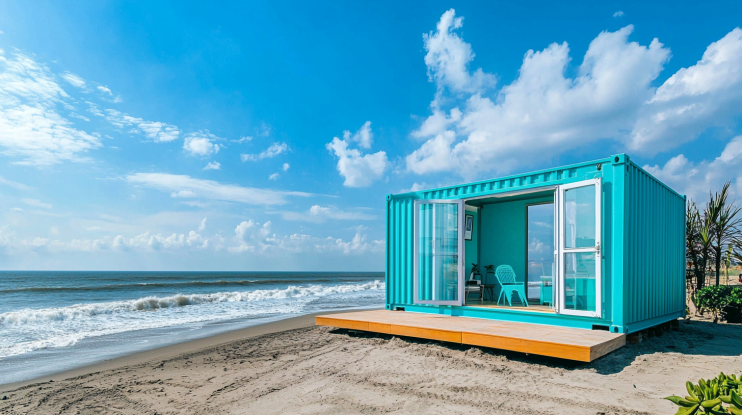
Bright turquoise container office with panoramic ocean views.
Cost-Effectiveness of Containerized Offices
One of the biggest advantages of containerized offices is their cost-effectiveness. Traditional office spaces can be expensive to build or lease, requiring significant upfront investment. However, eco-friendly office solutions offer a more affordable alternative. Since they are made from repurposed shipping containers, the cost of materials is much lower than that of conventional construction. Additionally, the construction process is faster and simpler, which reduces labor costs. Businesses can save a considerable amount of money by choosing container conversions over traditional office spaces, making them an attractive option for startups and small businesses with limited budgets.
Moreover, containerized offices help reduce ongoing operational costs. Traditional office buildings often have high maintenance and utility expenses, but office containers are designed to be energy-efficient and low-maintenance. Many flexible office space are equipped with modern insulation, energy-efficient windows, and eco-friendly HVAC systems, which help lower heating and cooling costs. The modular design of these offices also allows businesses to expand or contract their workspace as needed, avoiding the costs associated with unused space in a larger building. As a result, custom office containers offer long-term savings, helping businesses manage their resources more effectively.
For startups and small businesses, the financial benefits of containerized offices are especially significant. These businesses often operate on tight budgets and need to make every dollar count. By opting for container offices, they can reduce their overhead costs while still providing a functional and attractive workspace for their employees. Additionally, the flexibility and mobility of shipping container offices mean that businesses can easily relocate or expand as they grow, without incurring the high costs of moving or renovating traditional office spaces. In this way, container-based offices not only offer immediate cost savings but also provide financial flexibility that can support long-term business growth.
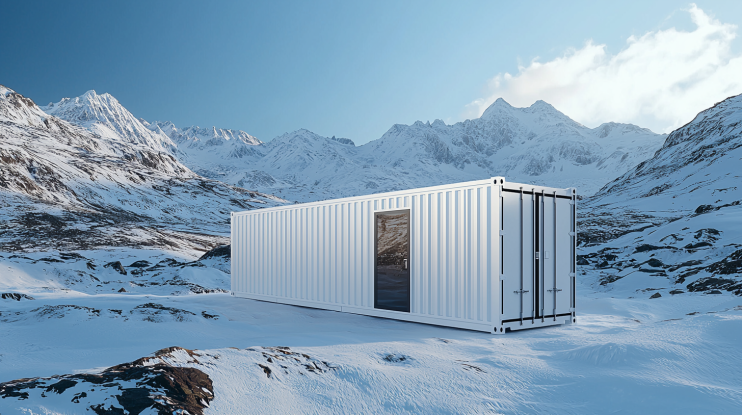
Bright white container office blending with the snowy arctic surroundings.
Sustainability and Environmental Impact
Containerized offices stand out as an environmentally friendly solution in the modern workspace landscape. Traditional office construction often involves significant resource use and waste generation. In contrast, modular container offices repurpose used shipping containers, giving them a second life as functional workspaces. This repurposing not only reduces the demand for new building materials but also minimizes waste, as fewer containers end up in landfills. By choosing container workspace, businesses can lower their environmental footprint, contributing to a more sustainable future while still meeting their workspace needs.
Another key sustainability advantage of containerized offices is their energy efficiency. Many containerized workspaces are designed with sustainability in mind, incorporating features like high-quality insulation, energy-efficient windows, and solar panels. These elements help reduce the energy required to heat, cool, and power the office, leading to lower utility costs and a smaller carbon footprint. Moreover, the compact size of container office units means that they require less energy to operate than larger, traditional buildings. This makes them an ideal choice for businesses looking to reduce their energy consumption and promote sustainable practices.
Beyond their construction and energy efficiency, containerized offices also support broader environmental and social goals. By using recycled materials and reducing waste, these offices align with corporate social responsibility (CSR) initiatives that emphasize sustainability and environmental stewardship. Additionally, because they can be easily relocated and reused, containerized office spaces promote a circular economy, where resources are kept in use for as long as possible. This not only benefits the environment but also helps businesses demonstrate their commitment to sustainability, which can enhance their brand image and appeal to eco-conscious customers and employees. As a result, container-built offices offer a practical and impactful way for businesses to reduce their environmental impact.
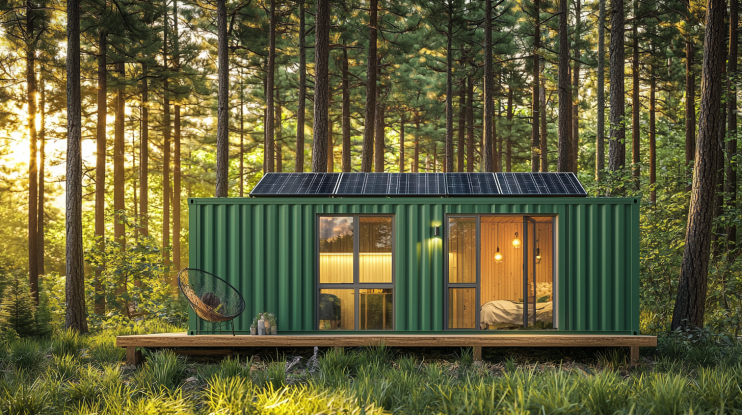
Forest green container office harmonizing with the natural surroundings.
Speed of Deployment and Installation
One of the most compelling advantages of containerized offices is the speed at which they can be deployed and installed. Traditional office construction can take months or even years to complete, involving complex planning, zoning approvals, and extensive construction work. In contrast, containerized workplace can be set up in a fraction of the time. Since the basic structure of the office is already in place with the shipping container, the focus shifts to modifying and outfitting the interior. This streamlined process allows businesses to have a fully functional office space ready in weeks, rather than months.
The quick setup of containerized offices also means minimal disruption to business operations. For companies that need to expand or relocate quickly, waiting for a traditional office space to be built or renovated is not always feasible. Container offices offer a practical solution by allowing businesses to move into their new space almost immediately. This rapid deployment is particularly beneficial for companies operating in fast-paced industries or those facing unexpected changes, such as a sudden increase in staff or the need to establish a temporary office at a new location. The ability to set up quickly gives businesses the flexibility to adapt without losing valuable time.
Moreover, the installation process for containerized offices is relatively simple and can be done with minimal infrastructure. Unlike traditional buildings, which may require extensive groundwork, foundations, and utility hookups, shipping container offices often need only a level surface and basic utility connections. This streamlined approach significantly cuts down both the time and expenses associated with installation. In addition, container-based offices can be easily relocated or expanded as needed, without the hassle of major construction. This makes them an ideal choice for businesses that prioritize speed and efficiency in their workspace solutions, ensuring they can respond swiftly to changing needs and opportunities.
Mobility and Portability
Containerized offices offer a level of mobility and portability that traditional office spaces simply cannot match. These offices are designed to be easily transported from one location to another, making them an ideal solution for businesses that need flexibility. Whether you need to relocate for a short-term project, set up a temporary office at a new site, or even move your entire operation to a different city, modular container offices can be quickly and efficiently moved to wherever they are needed. This portability allows businesses to respond to changing circumstances without the delays and costs associated with conventional office moves.
The mobility of containerized offices is particularly valuable in industries that require frequent relocation or temporary setups. For example, construction companies often need on-site offices that can be moved as projects progress. Similarly, event management firms may need temporary workspaces at different venues. With container workspace, these businesses can easily transport their offices to the next location without worrying about the logistics of dismantling and reconstructing a traditional office space. This flexibility not only saves time but also reduces the stress and expense of setting up new offices, allowing companies to focus on their core activities.
Furthermore, the portable nature of containerized offices opens up new possibilities for businesses operating in remote or underserved areas. In regions where building a traditional office might be difficult or cost-prohibitive, containerized workspaces can be delivered and set up with minimal infrastructure. This is particularly useful for businesses in industries like mining, oil and gas, or humanitarian aid, where work often takes place in challenging environments. Container office units provide a practical and efficient solution, offering a comfortable and functional workspace that can be easily relocated as needed. By enabling businesses to work in diverse locations, containerized office spaces enhance operational flexibility and support growth in dynamic markets.
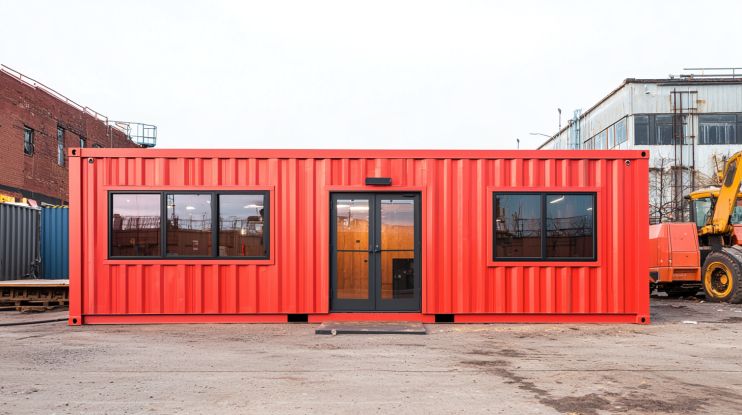
Bold red container office standing out in an industrial landscape.
Customization and Modularity
One of the standout features of containerized offices is their high level of customization and modularity. Unlike traditional office spaces, which are often constrained by fixed layouts and designs, container-built offices can be tailored to meet the specific needs of any business. Companies can choose the size, layout, and interior design that best suits their operations. Whether it’s creating private offices, open workspaces, or specialized areas like conference rooms or break areas, containerized workplace offer the flexibility to design a workspace that aligns perfectly with the company’s goals and culture.
The modular nature of containerized offices means they can be easily expanded or reconfigured as a business grows or changes. Need more space? Simply add another container to the existing setup. This scalability is particularly beneficial for startups and growing businesses that may need to adjust their workspace frequently. The ability to mix and match different modules also allows businesses to create a unique office environment that can evolve with them. For example, a company might start with a small, single-container office and later expand to a multi-container complex as their team grows. This adaptability makes containerized offices a cost-effective and future-proof solution.
Moreover, the customization options for containerized offices are vast. Businesses can choose from a wide range of finishes, furnishings, and technologies to create a workspace that is both functional and aesthetically pleasing. Whether you want a minimalist design with sleek, modern fixtures or a more traditional setup with warm, inviting elements, container offices can be customized to reflect the company’s brand and values. Additionally, these offices can be outfitted with advanced features like smart technology, energy-efficient lighting, and sustainable materials, enhancing both comfort and environmental performance. This level of customization ensures that shipping container offices not only meet practical needs but also provide an inspiring and motivating environment for employees.
Enhancing Employee Experience
Containerized offices have the potential to significantly enhance the employee experience by offering a workspace that is not only functional but also comfortable and inspiring. Traditional office spaces often lack the flexibility needed to create a truly employee-friendly environment. In contrast, container-based offices can be designed with the specific needs and preferences of employees in mind. For instance, these offices can include large windows for natural light, efficient climate control systems, and ergonomic furniture, all of which contribute to a healthier and more comfortable work environment. By prioritizing employee well-being, modular container offices can help boost productivity and job satisfaction.
Moreover, containerized offices can be tailored to foster collaboration and creativity among team members. Unlike traditional office spaces that might have rigid layouts, container workspace offer the flexibility to create open, collaborative areas where employees can easily interact and brainstorm together. At the same time, private spaces can be included for tasks that require focus and concentration. This balance between open and private areas helps cater to different work styles and needs, making it easier for employees to perform at their best. Additionally, unique design elements, such as break rooms with relaxing decor or outdoor spaces, can be incorporated to provide employees with places to unwind and recharge during the day.
Containerized offices also support the work-life balance that is increasingly important to today’s workforce. Because these offices can be placed in a variety of locations, they offer the possibility of working closer to home or in environments that are more in tune with nature. For example, a containerized office could be set up in a peaceful, green area, offering employees a refreshing change from the typical urban office setting. This proximity to nature, along with the ability to easily customize the office layout, helps create a work environment that reduces stress and enhances overall job satisfaction. As businesses recognize the importance of employee well-being, containerized workspaces offer an innovative way to create a workspace that truly meets the needs of modern workers.
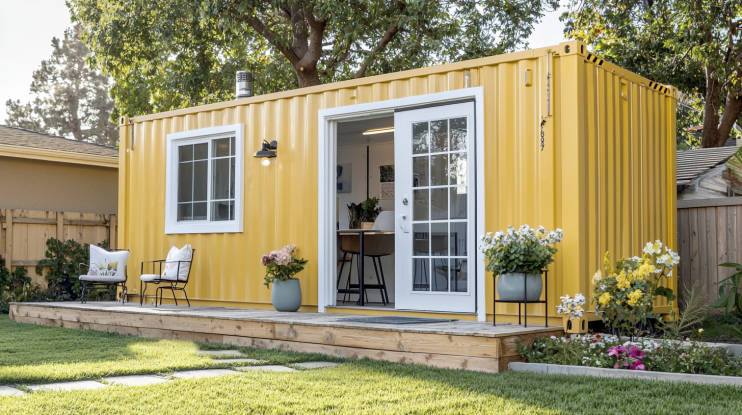
Pastel yellow container office nestled in a peaceful suburban neighborhood.
Safety and Security Considerations
Safety and security are paramount in any workspace, and containerized offices are no exception. Despite their unconventional origins as shipping containers, these offices are built to meet high safety standards. The structural integrity of shipping containers is inherently strong, designed to withstand harsh weather conditions and rough handling during transportation. When repurposed into offices, additional reinforcements and modifications are made to ensure they are safe for daily use. This includes adding insulation, fire-resistant materials, and secure doors and windows. These enhancements make container office units as safe as, if not safer than, traditional office buildings.
In addition to structural safety, containerized offices are designed to comply with local building codes and regulations. This ensures that they meet the same safety requirements as conventional buildings. Before a containerized office is installed, it goes through rigorous inspections and certifications to ensure it meets all necessary standards. This includes ensuring proper ventilation, electrical safety, and fire safety measures. Businesses can rest assured that their containerized office will provide a safe environment for employees, meeting all the necessary legal and safety standards required for an office space.
Security is another critical consideration for containerized offices. These offices can be equipped with modern security systems to protect against unauthorized access and theft. This includes installing secure locking mechanisms, alarm systems, and even surveillance cameras if needed. The robust steel structure of the container itself acts as a strong deterrent to break-ins. Additionally, because containerized office spaces are often modular and portable, businesses have the flexibility to relocate the office if security concerns arise in a particular area. This mobility adds an extra layer of security, ensuring that the workspace remains safe and secure, no matter where it is located.
Adapting to Remote and Hybrid Work Models
In recent years, remote and hybrid work models have become increasingly popular, and containerized offices offer an ideal solution for adapting to these new ways of working. Traditional office spaces often struggle to accommodate the flexibility that remote and hybrid work demand. However, container-built offices are inherently adaptable, making them a perfect fit for businesses embracing these models. For instance, a company can use containerized workplace to create satellite workspaces closer to where employees live, reducing commute times and providing a more convenient working environment. This flexibility helps businesses support their remote workforce effectively.
Containerized offices also play a crucial role in hybrid work environments, where employees split their time between working from home and the office. These offices can be designed to provide the right mix of collaborative spaces and private areas, catering to the diverse needs of a hybrid workforce. For example, container offices can include open-plan areas for team meetings and brainstorming sessions, as well as quiet rooms for focused, individual work. This flexibility allows businesses to create a dynamic workspace that can be adjusted as needed, ensuring employees have the right environment for whatever tasks they are working on, whether they are in the office full-time or part-time.
Moreover, containerized offices can be set up in various locations, providing businesses with the ability to create regional hubs for remote employees. This can be particularly beneficial for companies with a dispersed workforce, allowing them to establish smaller, localized offices rather than relying on a single, centralized location. These hubs can be easily expanded or relocated as business needs change, offering unparalleled flexibility in managing a remote or hybrid workforce. By integrating shipping container offices into their operations, businesses can create a work environment that supports the modern demands of remote and hybrid work models, ensuring that employees have access to functional and flexible workspaces, no matter where they are located.
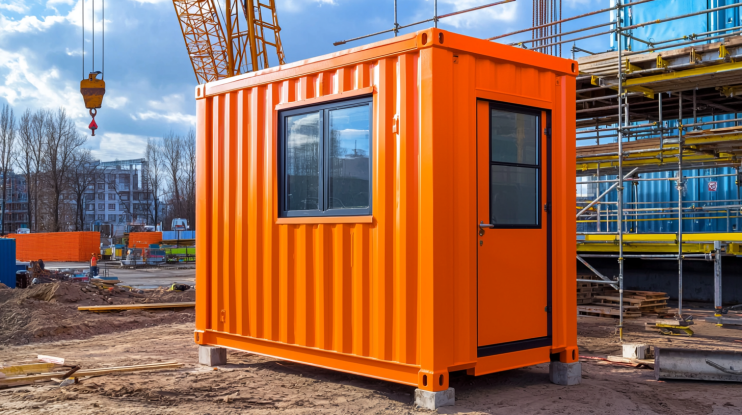
Bright orange container office visible amidst construction activities.
Industry Applications and Success Stories
Containerized offices have found applications across a wide range of industries, showcasing their versatility and effectiveness in meeting diverse business needs. In the construction industry, for example, container-based offices are commonly used as on-site project offices. These offices provide a convenient and portable solution for project managers and teams who need to be close to the action. Because they can be easily moved and set up at different sites, modular container offices allow construction companies to maintain a consistent and organized workspace, no matter where the project takes them. This flexibility is invaluable in an industry that often requires rapid mobilization and demobilization.
In the creative and tech industries, containerized offices have become popular as innovative workspaces that reflect the cutting-edge nature of these fields. Startups and tech companies, in particular, appreciate the cost-effectiveness and customization options that container workspace offer. These businesses often need to scale quickly, and containerized workspaces allow them to expand their workspace without the lengthy and costly process of traditional construction. Moreover, the unique and modern aesthetic of container office units aligns well with the brand image of forward-thinking companies, helping them attract top talent and impress clients with their unconventional and creative workspace solutions.
Another notable application is in the education and nonprofit sectors, where containerized offices are used to create affordable and adaptable spaces for various programs. For example, schools and training centers in remote or underserved areas can use containerized office spaces as classrooms, administration buildings, or even libraries. Nonprofits working in disaster relief or development projects can deploy container-built offices as mobile command centers or community hubs. These success stories highlight how containerized workplace provide practical, cost-effective, and flexible solutions that can be tailored to the specific needs of any organization, demonstrating their wide-ranging impact across different industries.
Overcoming Challenges and Misconceptions
While containerized offices offer many benefits, there are also some challenges and misconceptions that businesses need to address. One common concern is the perception that container offices are cramped or uncomfortable. This misconception likely stems from the idea that shipping containers are small and not suited for human occupation. However, modern shipping container offices are designed with comfort and functionality in mind. They can be outfitted with insulation, climate control, and natural lighting to create a comfortable environment. Additionally, by combining multiple containers, businesses can create larger, more spacious offices that rival traditional buildings in terms of comfort and usability.
Another challenge that some businesses face is the assumption that containerized offices are difficult to customize or that they all look the same. In reality, container-based offices are highly customizable, offering a wide range of design options. Businesses can choose from different layouts, finishes, and features to create a workspace that reflects their brand and meets their specific needs. Whether a company wants a sleek, modern office or a more traditional look, modular container offices can be tailored to match. Furthermore, innovations in design and materials have expanded the possibilities for container workspace, making them an increasingly popular choice for businesses seeking unique and personalized workspaces.
There are also concerns about regulatory compliance and building codes, which can be a barrier for some businesses considering containerized workspaces. Nevertheless, these concerns are frequently rooted in misunderstandings. Containerized offices can be designed and constructed to meet all necessary building codes and regulations, just like any other type of office space. In fact, many companies that specialize in container office units have extensive experience navigating these requirements and can ensure that the offices are fully compliant. By addressing these challenges and misconceptions head-on, businesses can better understand the true potential of containerized office spaces and make informed decisions about whether they are the right fit for their needs.
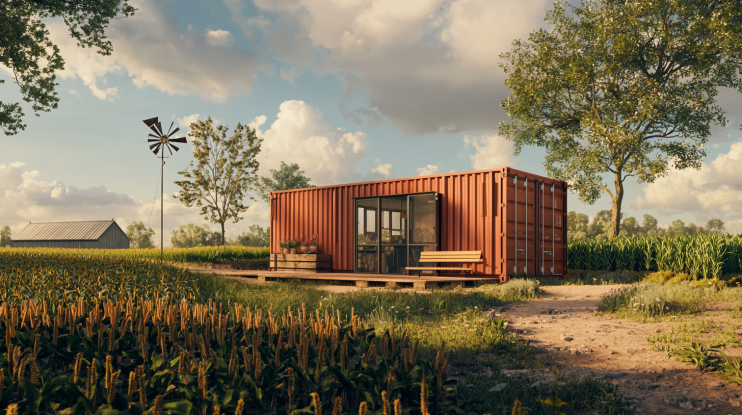
Rustic brown container office blending into the rural farm landscape
Integration with Smart Technology
Containerized offices are not just about flexibility and mobility; they also offer significant opportunities for integrating smart technology, making them ideal for the modern, tech-savvy workplace. Smart technology refers to systems and devices that use the internet to provide advanced functionality, such as automation, energy efficiency, and enhanced security. Container-built offices can be equipped with these smart systems to create an environment that is not only efficient but also highly adaptable to the needs of the business. For example, smart lighting systems can automatically adjust based on the time of day or occupancy, helping to reduce energy consumption and create a more comfortable workspace.
Moreover, containerized workplace can incorporate advanced climate control systems that maintain optimal working conditions regardless of the external environment. These systems can be remotely controlled via smartphones or computers, allowing business owners to monitor and adjust the office environment from anywhere. This is particularly useful for businesses that operate in locations with variable weather conditions. Additionally, integrating smart security systems into containerized offices can provide peace of mind. Features such as remote access control, surveillance cameras, and alarm systems can be easily added to ensure that the office is secure at all times, even in remote or temporary locations.
The integration of smart technology in container offices also supports the growing trend of data-driven decision-making in businesses. With the help of IoT (Internet of Things) devices, businesses can collect and analyze data on how their office spaces are used. For example, sensors can monitor which areas of the office are most frequently used, providing insights that can help optimize space utilization. This data can be invaluable for businesses looking to improve efficiency, reduce costs, and enhance employee productivity. By embracing smart technology, containerized offices not only offer a modern and convenient workspace but also help businesses stay ahead in an increasingly digital world.
Government and Regulatory Support
The adoption of containerized offices is gaining momentum, and government and regulatory bodies are increasingly recognizing their potential. One of the primary concerns businesses have when considering shipping container offices is ensuring compliance with local building codes and regulations. Fortunately, many governments have started to update their guidelines to accommodate the unique nature of these structures. In many regions, container-based offices can now be certified and approved just like traditional buildings, provided they meet specific safety and environmental standards. This shift in regulatory support is making it easier for businesses to choose modular container offices as a viable option for their workspace needs.
In addition to compliance, some governments are offering incentives and subsidies to encourage the use of sustainable and innovative building practices, including containerized offices. These incentives can come in the form of tax breaks, grants, or low-interest loans, making it more financially attractive for businesses to invest in container workspace. These incentives are often part of broader initiatives aimed at promoting green building practices, reducing carbon footprints, and supporting the circular economy. By repurposing shipping containers, businesses can contribute to these environmental goals while also benefiting from the financial support offered by government programs.
Understanding zoning and permit requirements is another critical aspect of setting up containerized offices. While the process can vary depending on the location, many areas are becoming more flexible in their zoning laws to accommodate innovative building solutions like containerized workspaces. Some municipalities have even established special zones or streamlined permitting processes to encourage the development of containerized structures. This regulatory support helps businesses navigate the legal landscape more easily, reducing the time and complexity involved in setting up a containerized office. As more governments recognize the benefits of container office units, we can expect continued growth and support in this area, further solidifying their place in the future of workspace solutions.
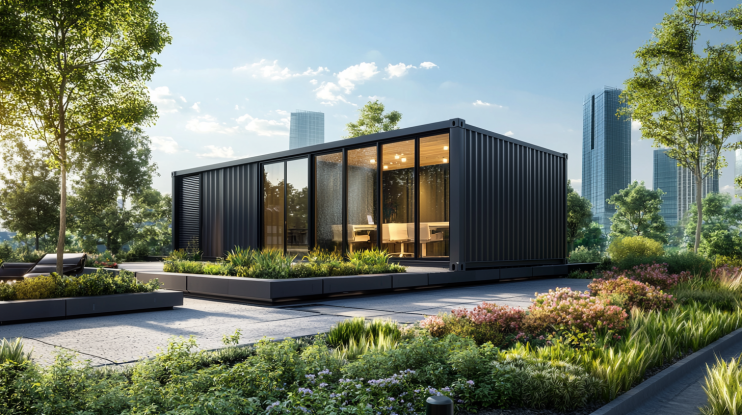
Sleek black container office in a cutting-edge tech park environment.
Market Growth and Future Potential
The containerized office market is rapidly expanding, fueled by the growing need for adaptable, cost-efficient, and eco-friendly workspace solutions. As more businesses recognize the benefits of containerized offices, the industry is expanding rapidly. The market is no longer limited to small startups or temporary projects; larger corporations and even government agencies are beginning to adopt containerized office spaces for various purposes. This growing acceptance is reflected in the rising number of companies specializing in the design, construction, and customization of these innovative workspaces. As a result, the market for container-built offices is expected to continue its upward trajectory.
One of the key factors contributing to the market’s growth is the versatility of containerized offices. They can be adapted to a wide range of industries, from construction and event management to education and healthcare. This adaptability makes containerized workplace an attractive option for businesses of all sizes and sectors. Moreover, the increasing focus on sustainability is driving more companies to consider container offices as part of their environmental strategies. By repurposing shipping containers and using energy-efficient materials and systems, businesses can reduce their environmental impact while still meeting their workspace needs. This alignment with sustainability goals further boosts the market potential for shipping container offices.
Looking ahead, the future potential of containerized offices appears promising. As the global workforce continues to evolve, with remote and hybrid work becoming more common, the demand for flexible and portable workspaces will likely grow. Additionally, advancements in smart technology and construction techniques will enhance the functionality and appeal of container-based offices, making them even more competitive with traditional office spaces. Investors and developers are also taking notice, with increasing interest in funding projects that involve containerized office solutions. As the market continues to mature, we can expect to see further innovations and widespread adoption of modular container offices, positioning them as a key player in the future of workspaces.
Competitive Advantages for Businesses
Containerized offices provide businesses with several competitive advantages that can help them stand out in today’s crowded market. One of the most significant advantages is the ability to create a unique and innovative workspace that reflects the company’s brand and values. In a world where first impressions matter, having an office that is not only functional but also visually striking can make a strong statement to clients, partners, and potential employees. container workspace allow businesses to design a workspace that is both modern and distinctive, helping them differentiate themselves from competitors who rely on more traditional office setups.
Another competitive advantage of containerized offices is their flexibility. As businesses grow and evolve, their workspace needs can change rapidly. Traditional office spaces often require long-term leases and significant financial commitments, making it difficult for companies to adapt quickly. In contrast, container office units can be easily expanded, reconfigured, or relocated to meet changing demands. This flexibility allows businesses to scale their operations more effectively, without the constraints of a fixed, conventional office space. Whether a company needs to add more space for a growing team or move to a new location, containerized workspaces provide the agility needed to respond to market changes quickly.
Furthermore, containerized offices can help businesses attract top talent. Today’s workforce is increasingly looking for employers who prioritize sustainability, innovation, and work-life balance. By investing in container-built offices, companies can demonstrate their commitment to these values, creating an attractive environment for current and prospective employees. The unique and customizable nature of containerized office spaces can also contribute to a positive company culture, fostering creativity, collaboration, and employee satisfaction. These factors can give businesses a significant edge in the competitive job market, helping them recruit and retain the best talent in their industry.
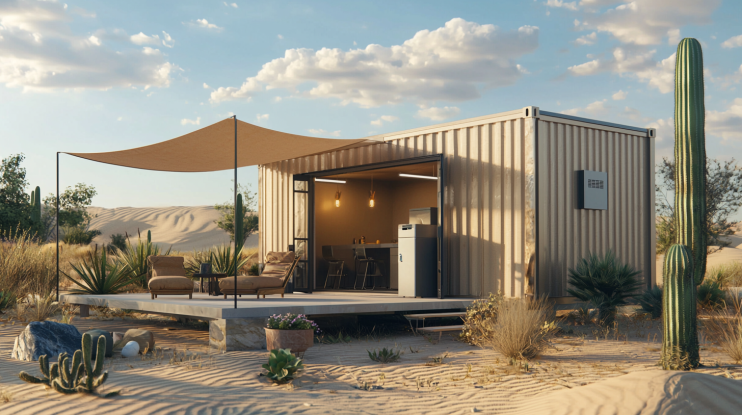
Sandy beige container office blending with the arid desert environment.
Environmental and Social Responsibility
Containerized offices align closely with the growing emphasis on environmental and social responsibility in the business world. As more companies seek to reduce their carbon footprint and operate sustainably, container offices provide a practical solution. These offices repurpose shipping containers, which would otherwise contribute to industrial waste, transforming them into functional and modern workspaces. This approach significantly reduces the need for new construction materials, minimizing the environmental impact associated with traditional building methods. By choosing containerized workplace, businesses can demonstrate their commitment to sustainable practices and contribute to the global effort to combat climate change.
In addition to environmental benefits, containerized offices support corporate social responsibility (CSR) initiatives by promoting community engagement and economic sustainability. For example, businesses can use container-based offices to create temporary workspaces in underserved areas, bringing job opportunities and resources to communities that need them most. This is particularly relevant in disaster recovery efforts, where quick deployment of shipping container offices can help establish command centers, clinics, or temporary shelters. These offices can be set up rapidly and efficiently, providing essential services and support to affected populations, which enhances the company’s reputation as a socially responsible entity.
Moreover, containerized offices can enhance a company’s relationship with its employees and customers by reflecting values that resonate with today’s socially conscious consumers. Many customers and employees prefer to work with or support companies that prioritize sustainability and ethical practices. By investing in container workspace, businesses not only reduce their environmental impact but also signal their commitment to making a positive social impact. This can lead to increased brand loyalty, customer trust, and employee satisfaction. As a result, modular container offices are more than just a functional workspace solution—they are a powerful tool for advancing environmental and social responsibility, helping businesses build a positive reputation and create a positive impact on the world.
Case Studies and Testimonials
The real-world success of containerized offices can be best understood through case studies and testimonials from businesses that have adopted this innovative solution. Across various industries, companies have found that containerized office spaces not only meet their workspace needs but also offer unique benefits that traditional offices cannot. For example, a tech startup in Silicon Valley utilized container office units to create a modular, expandable workspace that could grow with their team. The company appreciated the ability to customize the interior to fit their collaborative work culture, and the cost savings allowed them to allocate more resources toward product development. Their success story highlights how containerized workspaces can provide a flexible, cost-effective solution for growing businesses.
In another instance, a construction company used containerized offices as on-site project headquarters. These offices were transported directly to the job site, providing a secure and convenient workspace for project managers, engineers, and staff. The company reported significant savings in time and money since they didn’t have to invest in temporary buildings that would later be dismantled. The modular nature of the containerized workplace also allowed them to easily relocate the offices as projects progressed, ensuring that the workspace was always close to the action. This case study demonstrates the practical benefits of container-built offices in industries that require mobility and adaptability.
Testimonials from employees working in containerized offices also paint a positive picture. Many employees appreciate the unique and modern design of these offices, noting that the spaces feel both functional and inspiring. One employee at a creative agency described their containerized office as “a place that fosters creativity and innovation,” pointing out the natural light, open layout, and eco-friendly features as key elements that enhanced their work experience. Another testimonial from a nonprofit organization emphasized the environmental benefits, with the organization’s director praising the office for aligning with their mission of sustainability. These personal accounts underscore the wide-ranging appeal of container offices, showing that they not only meet operational needs but also enhance employee satisfaction and support organizational values.

Slate gray container office perched on a rugged mountain slope.
 Container Cafe
Container Cafe